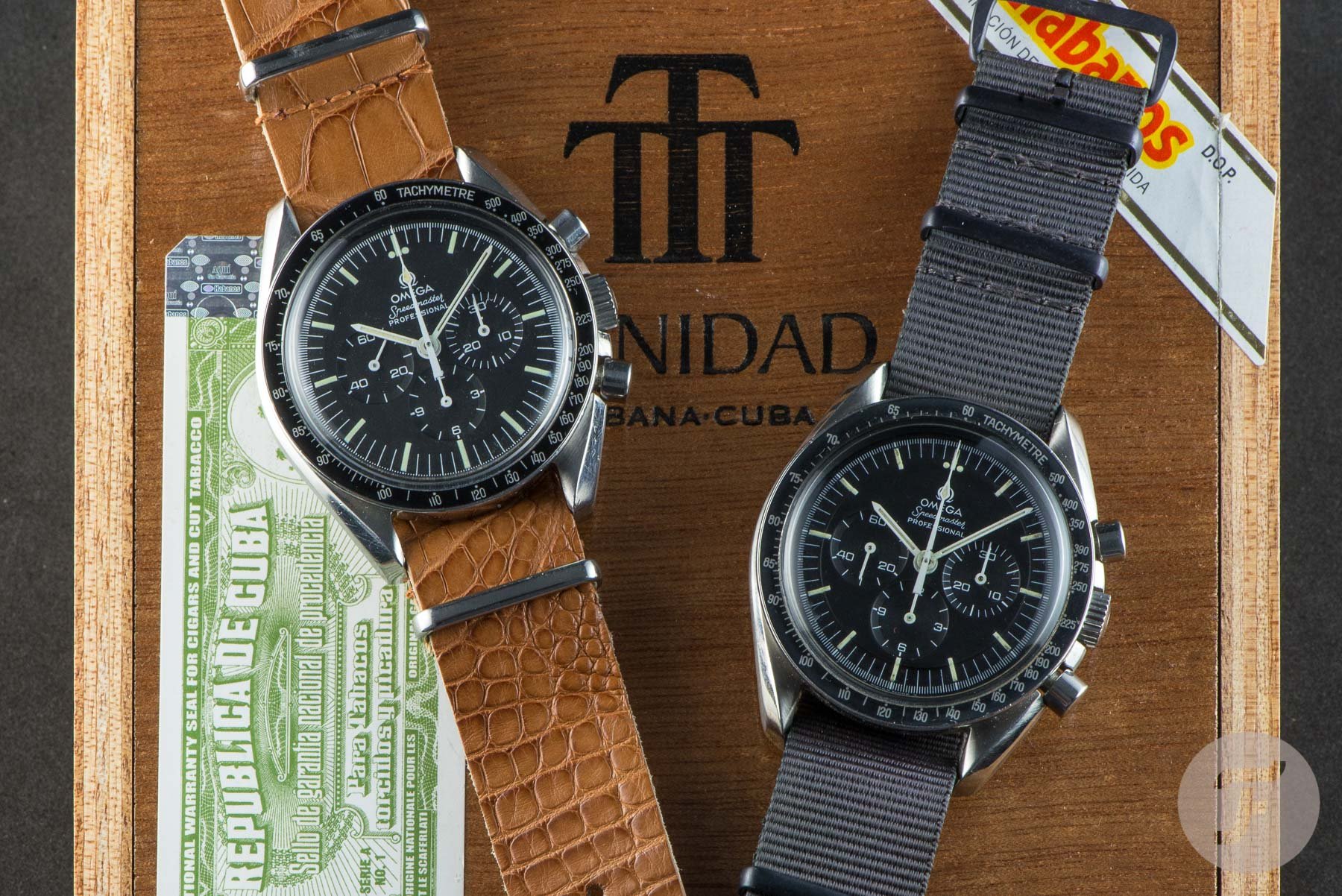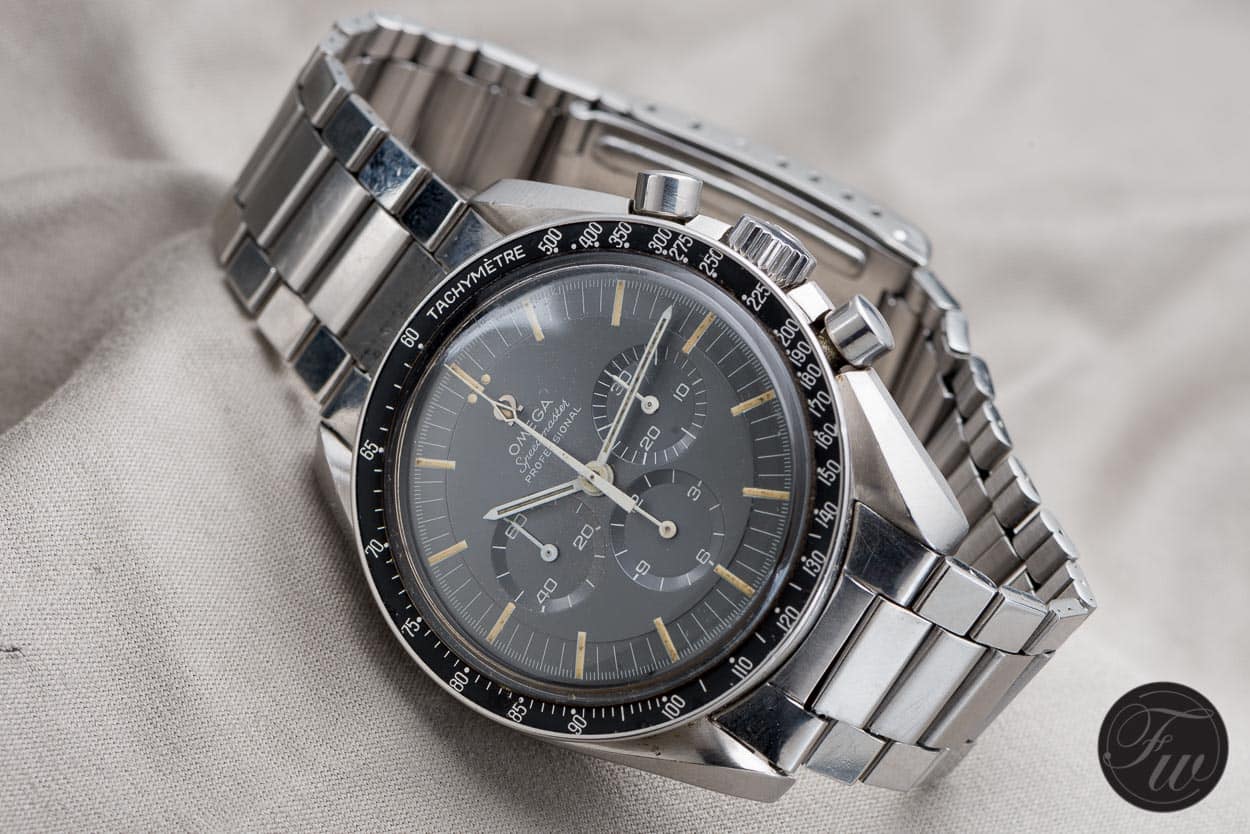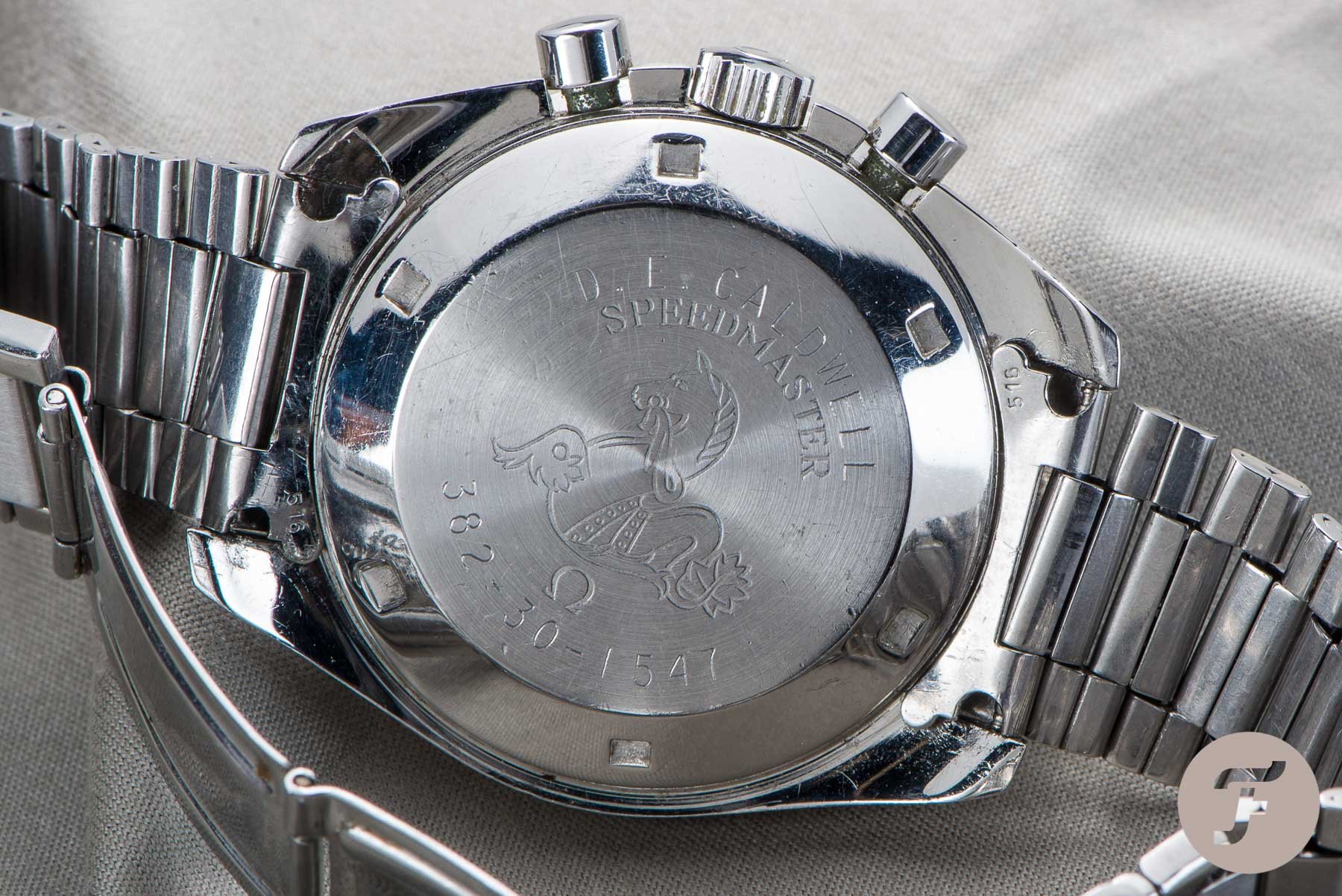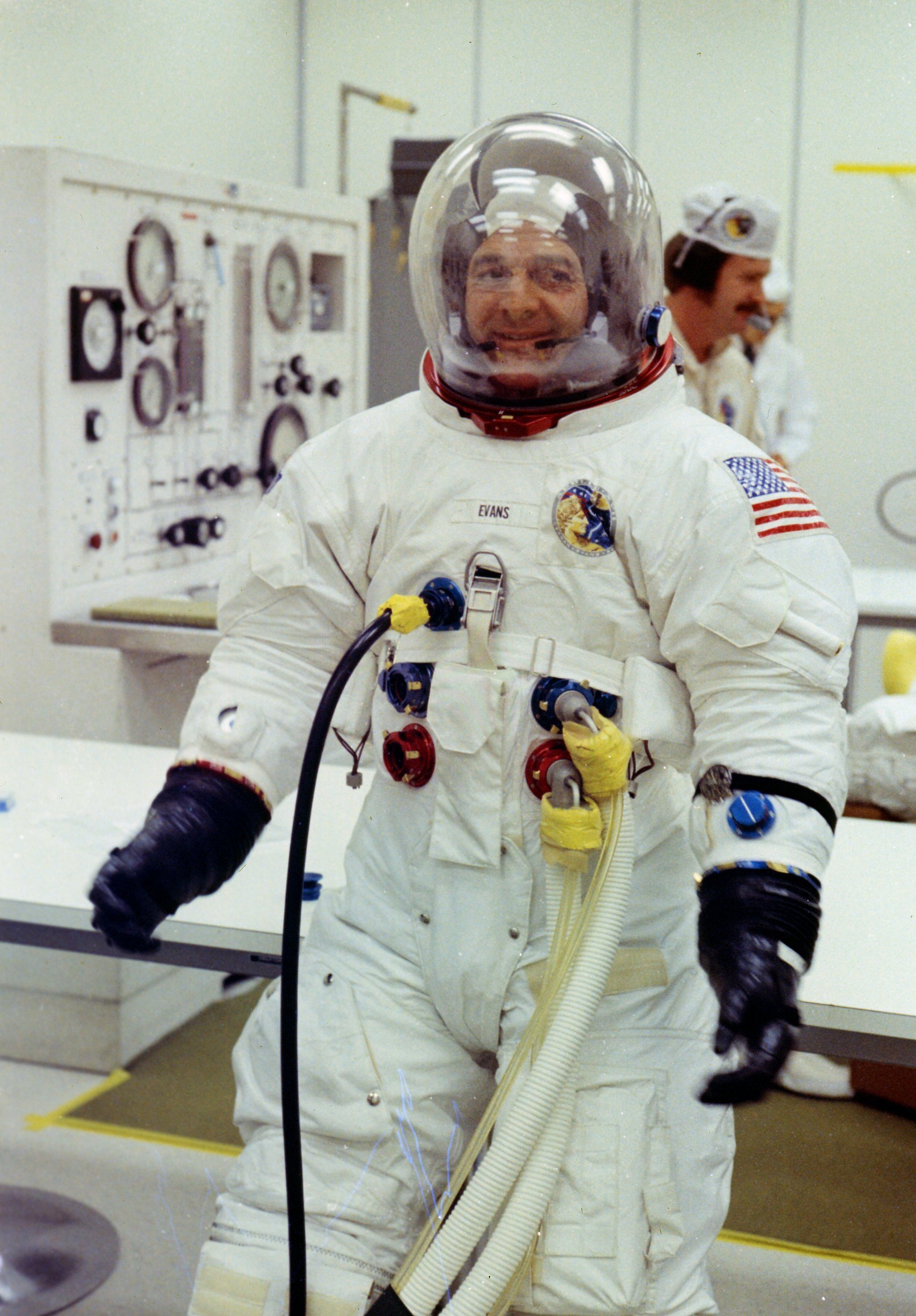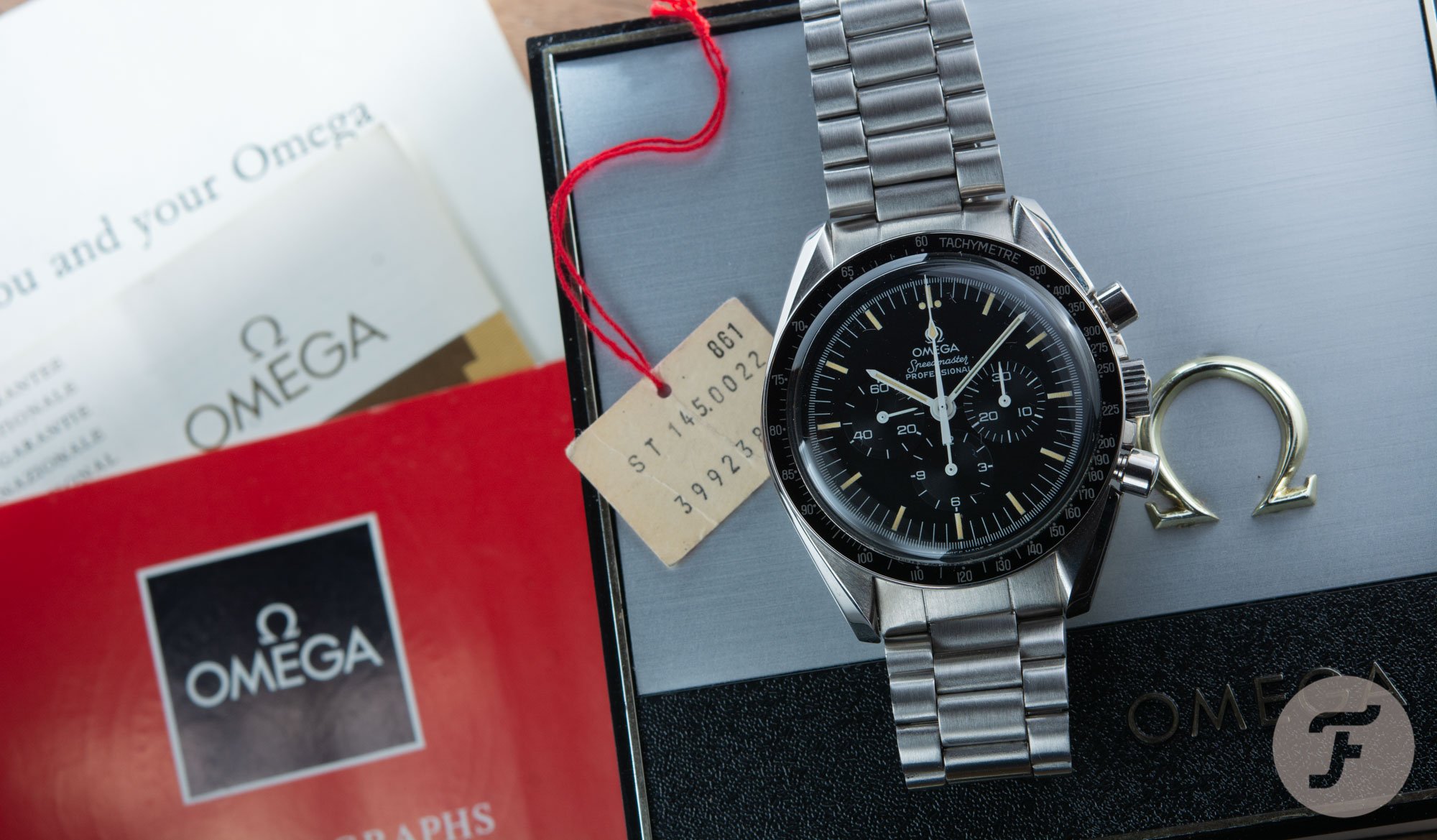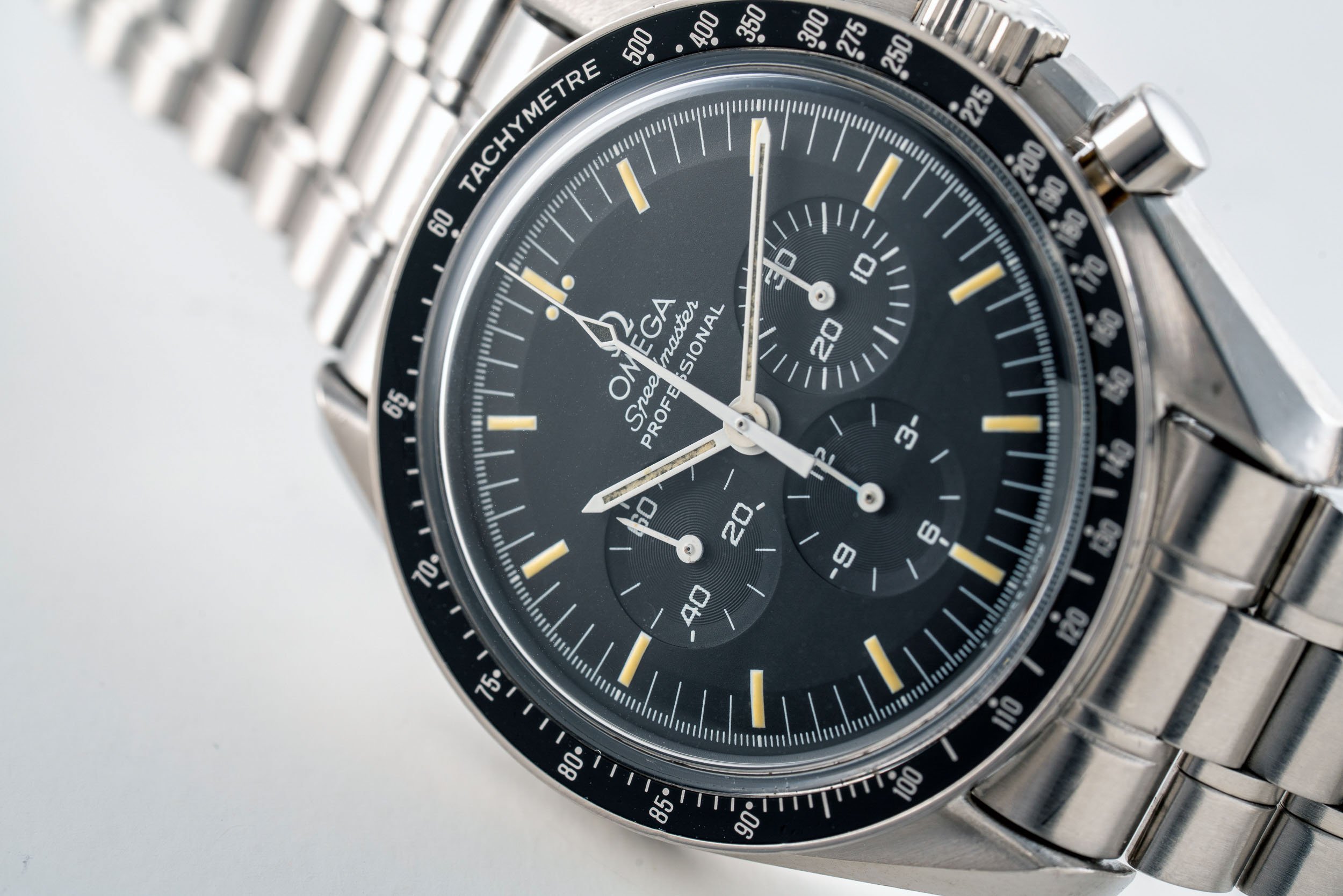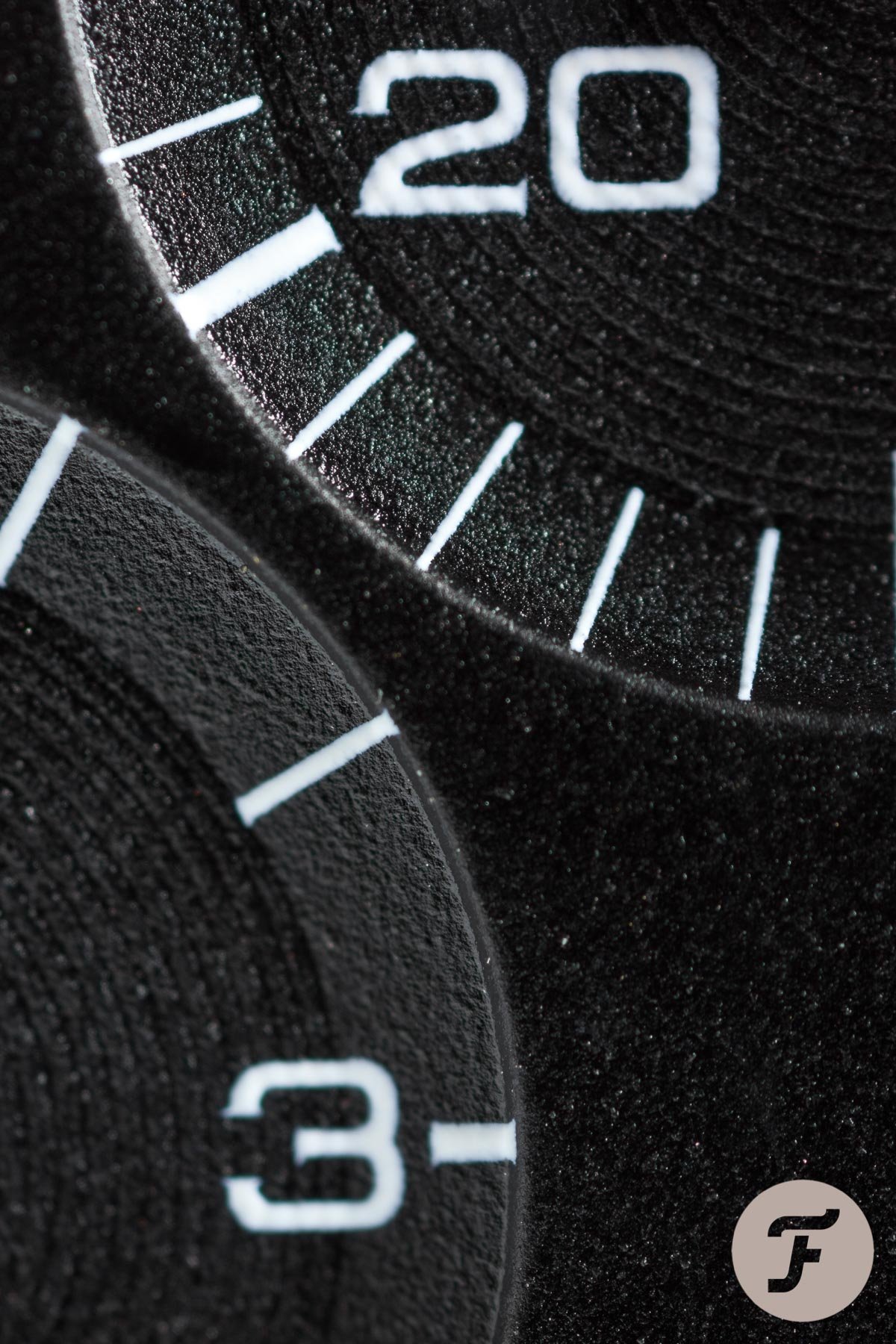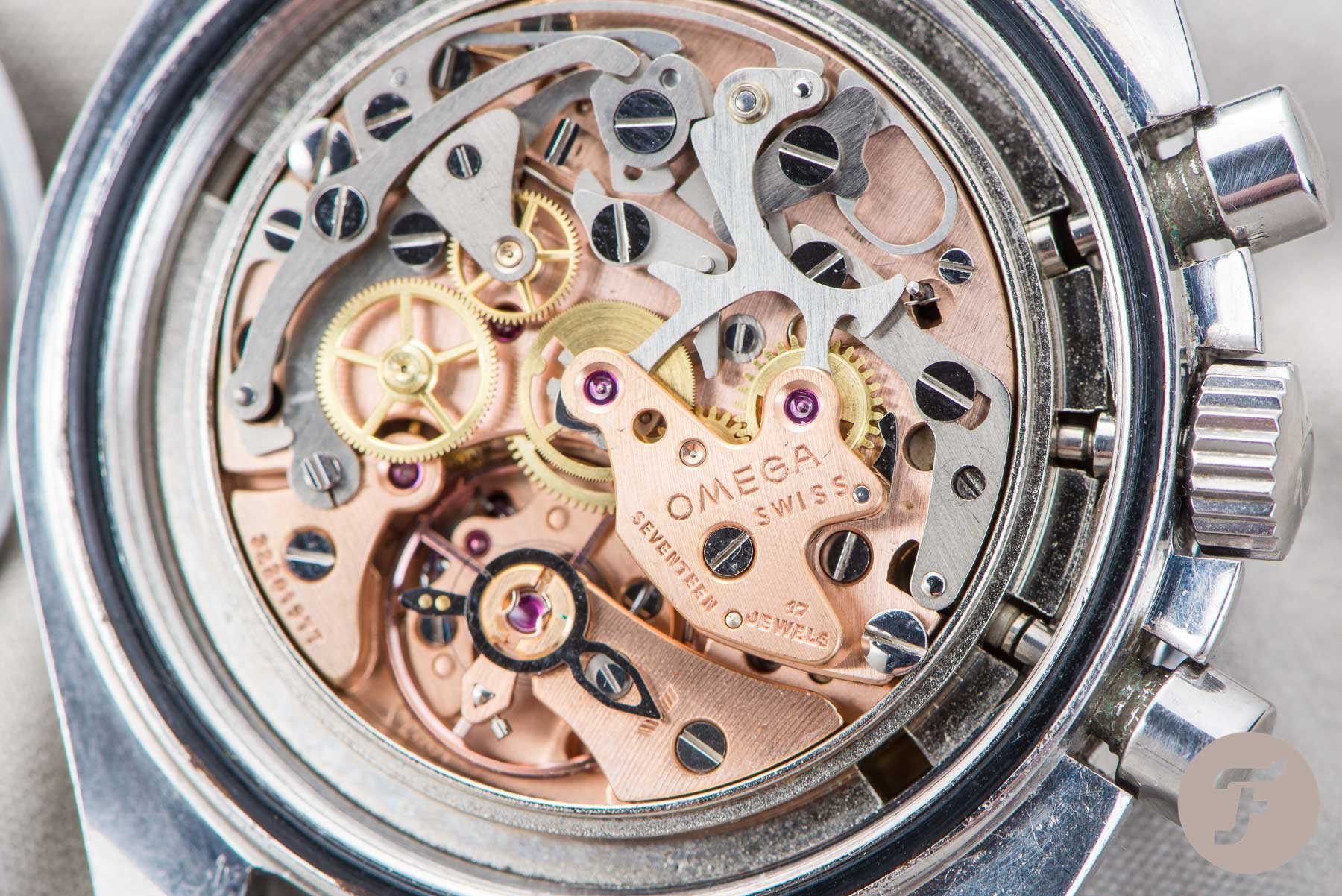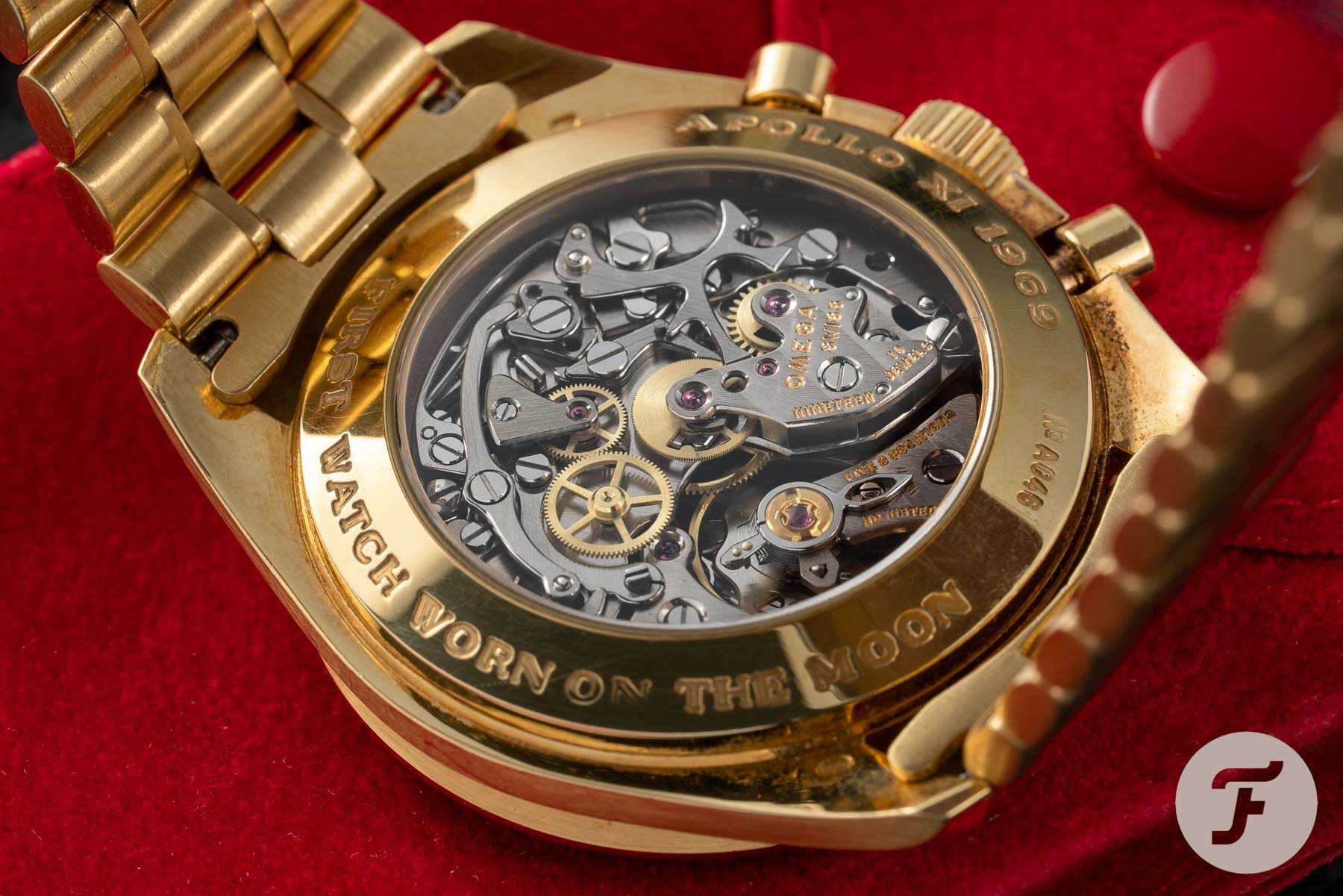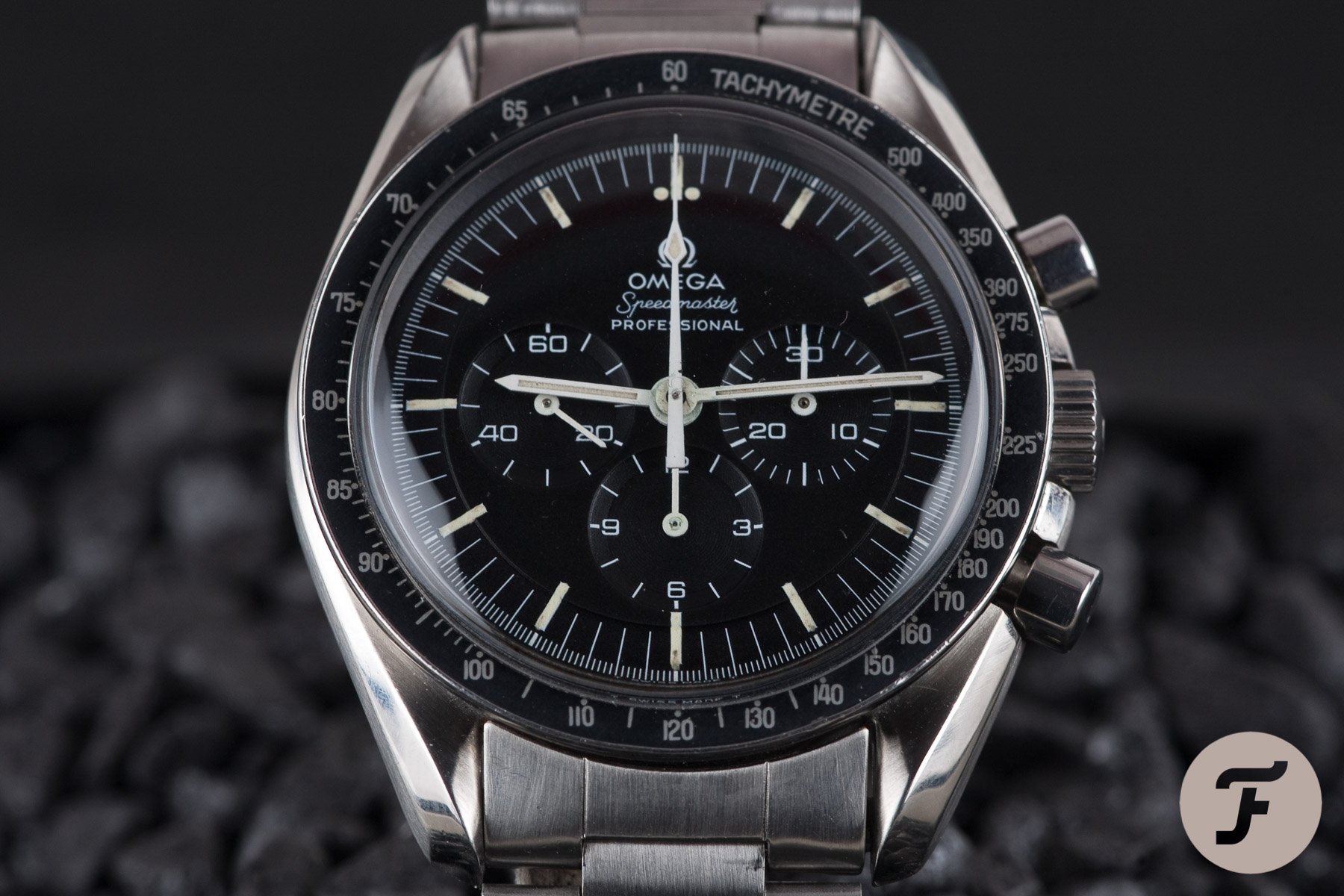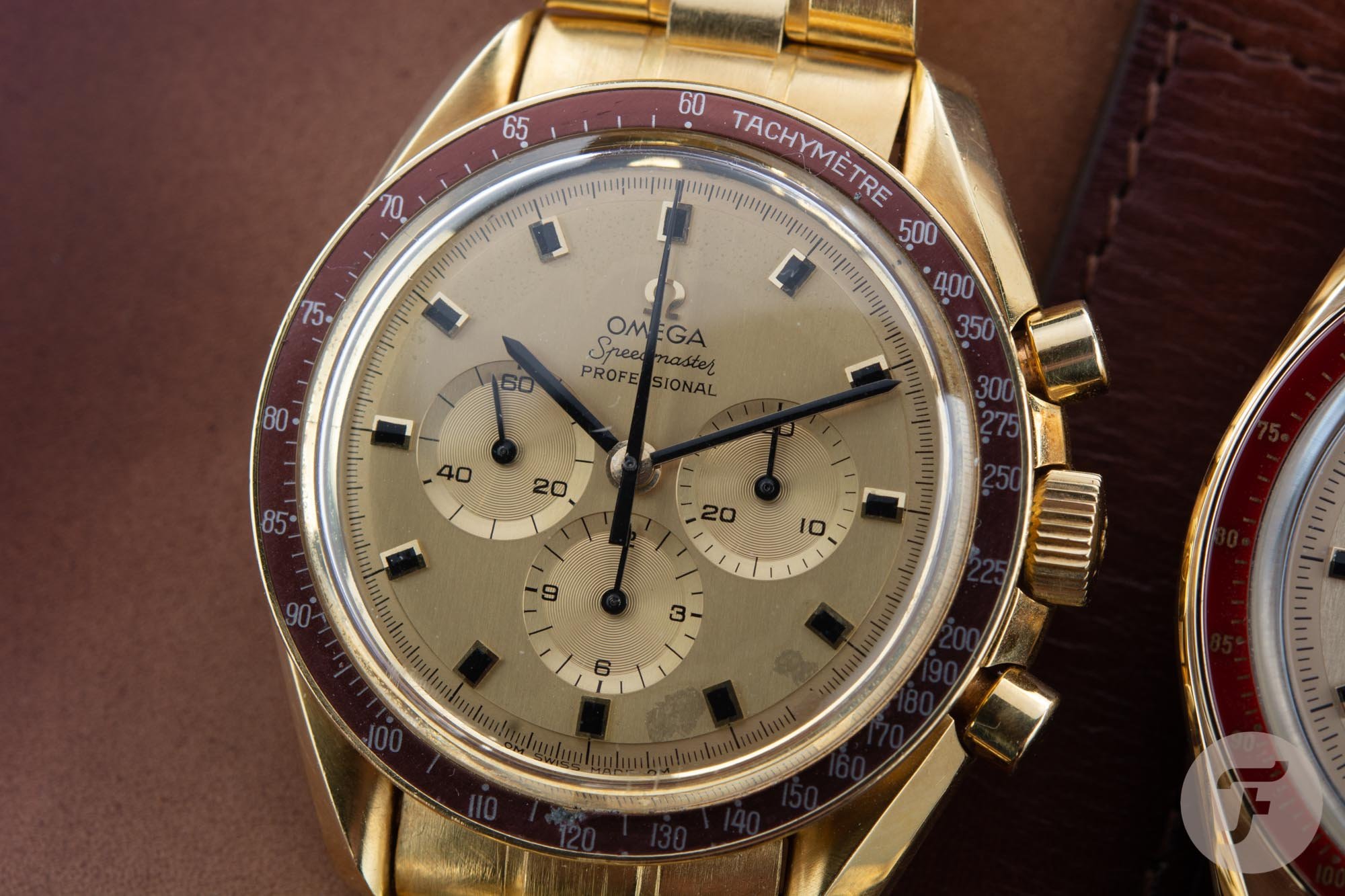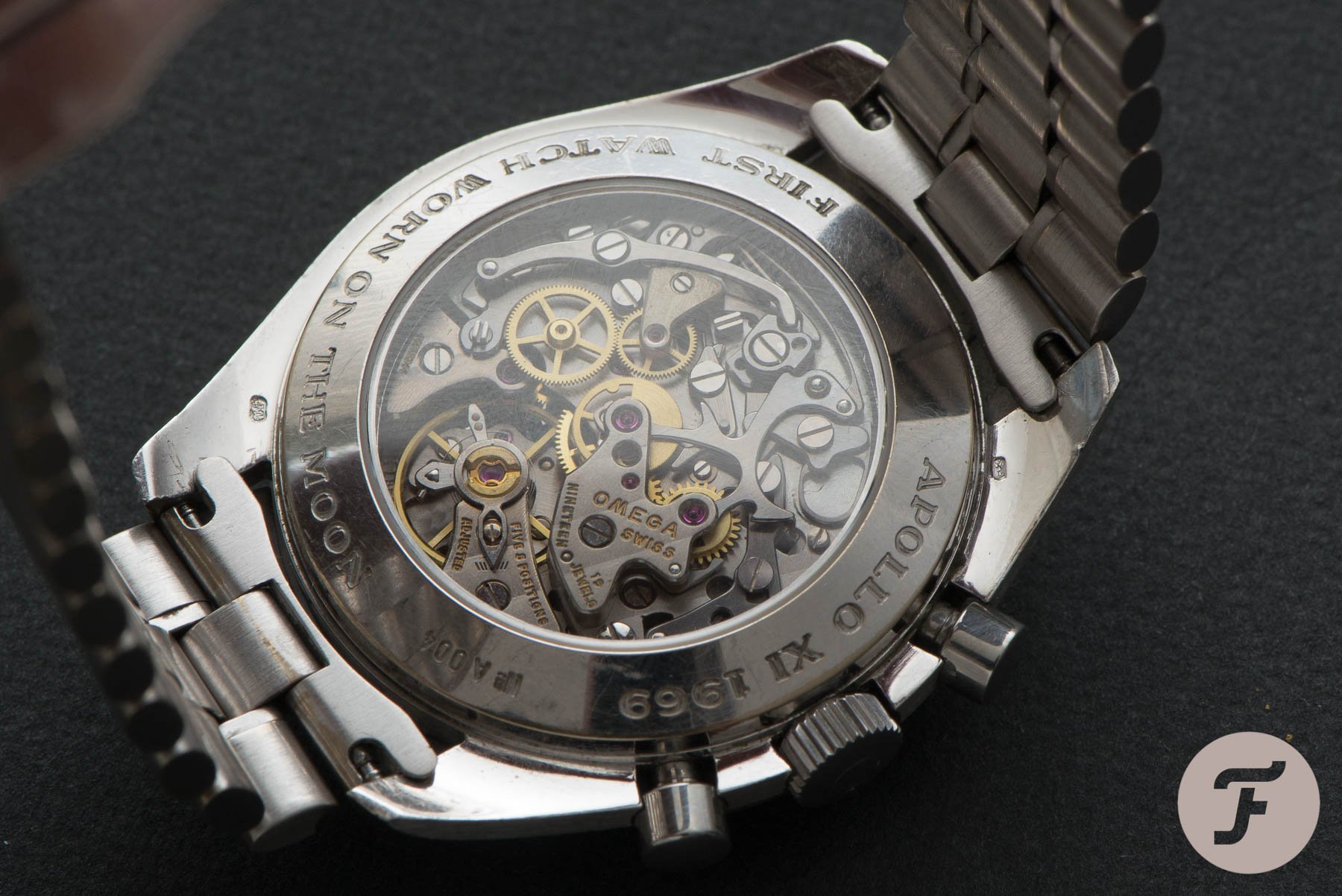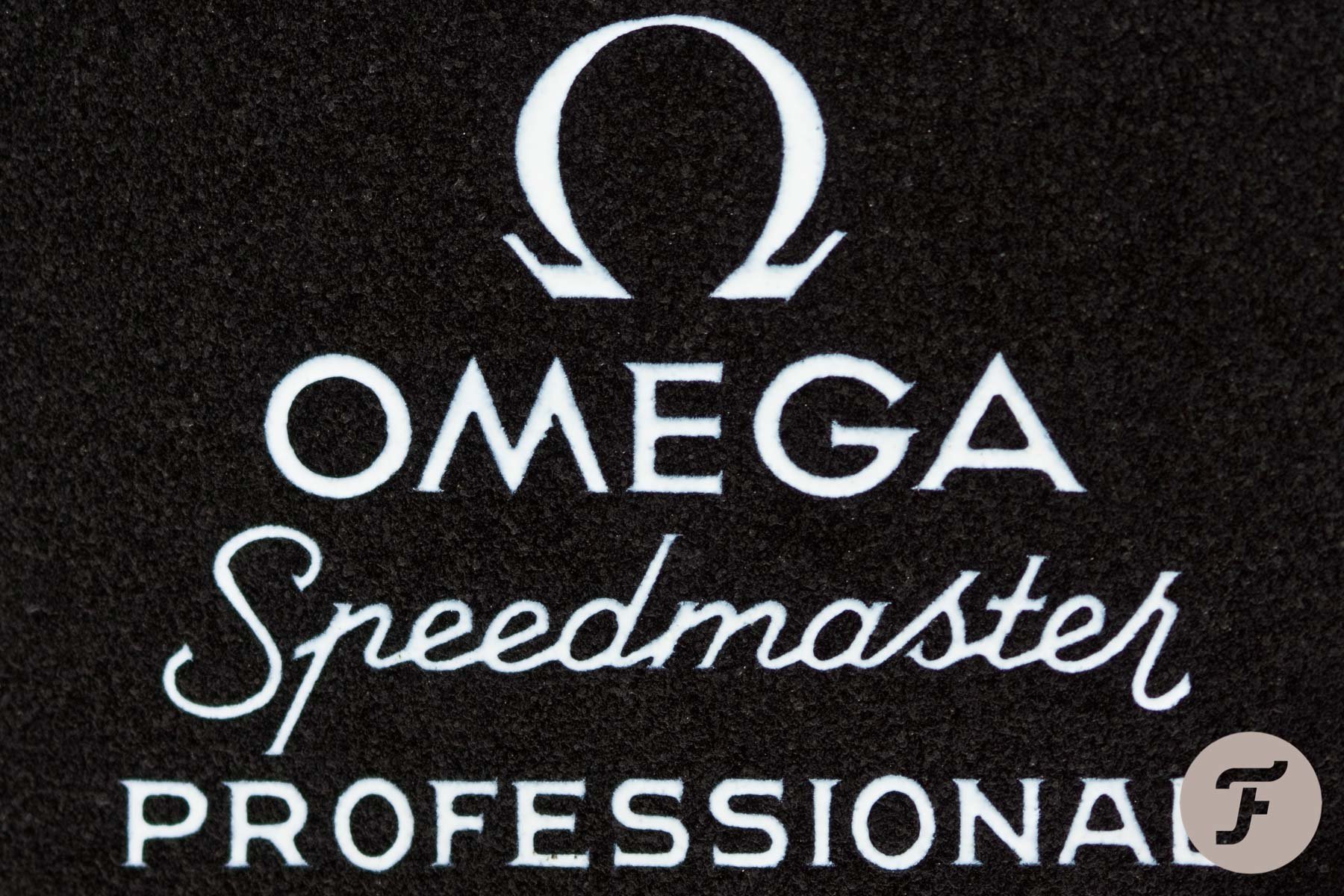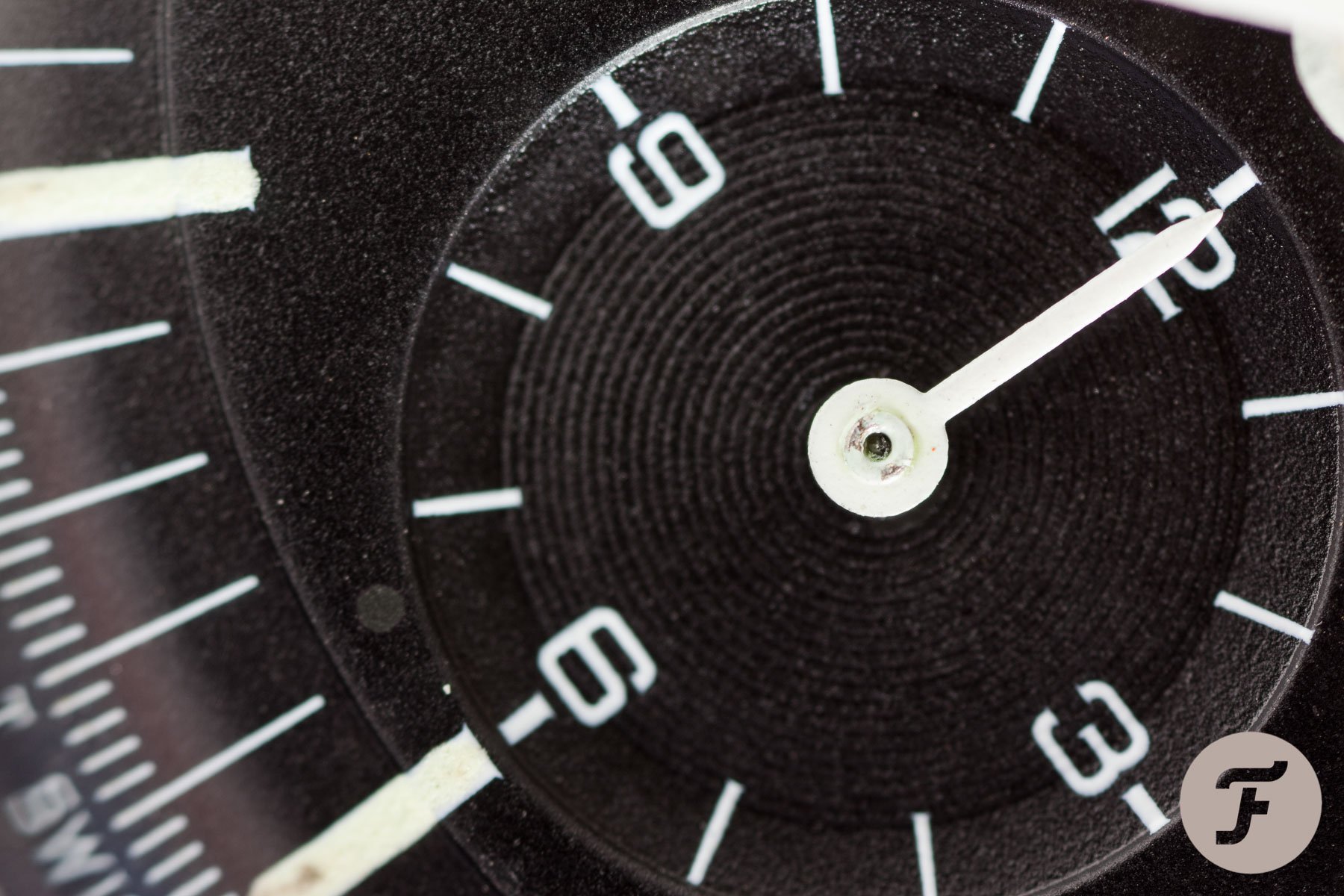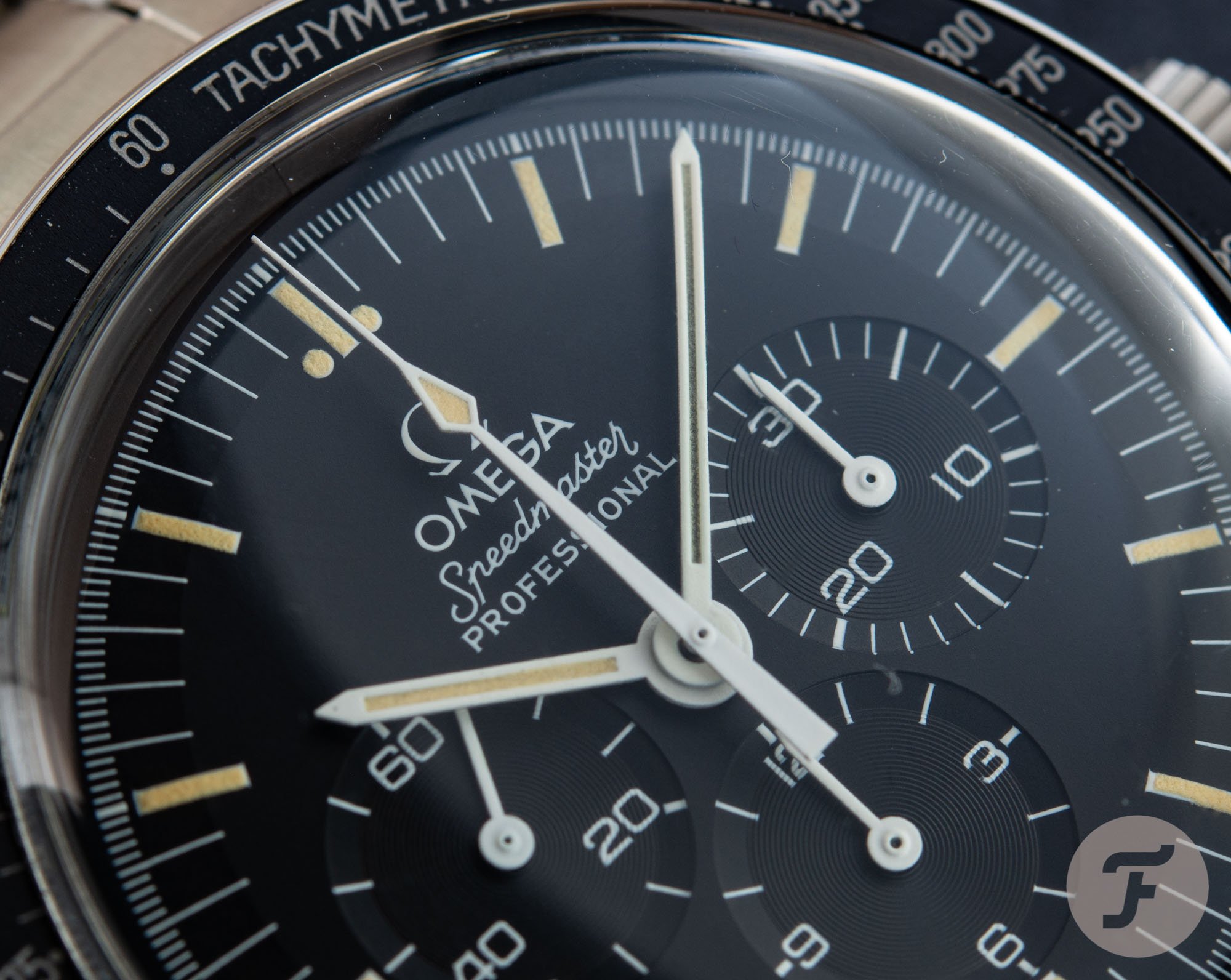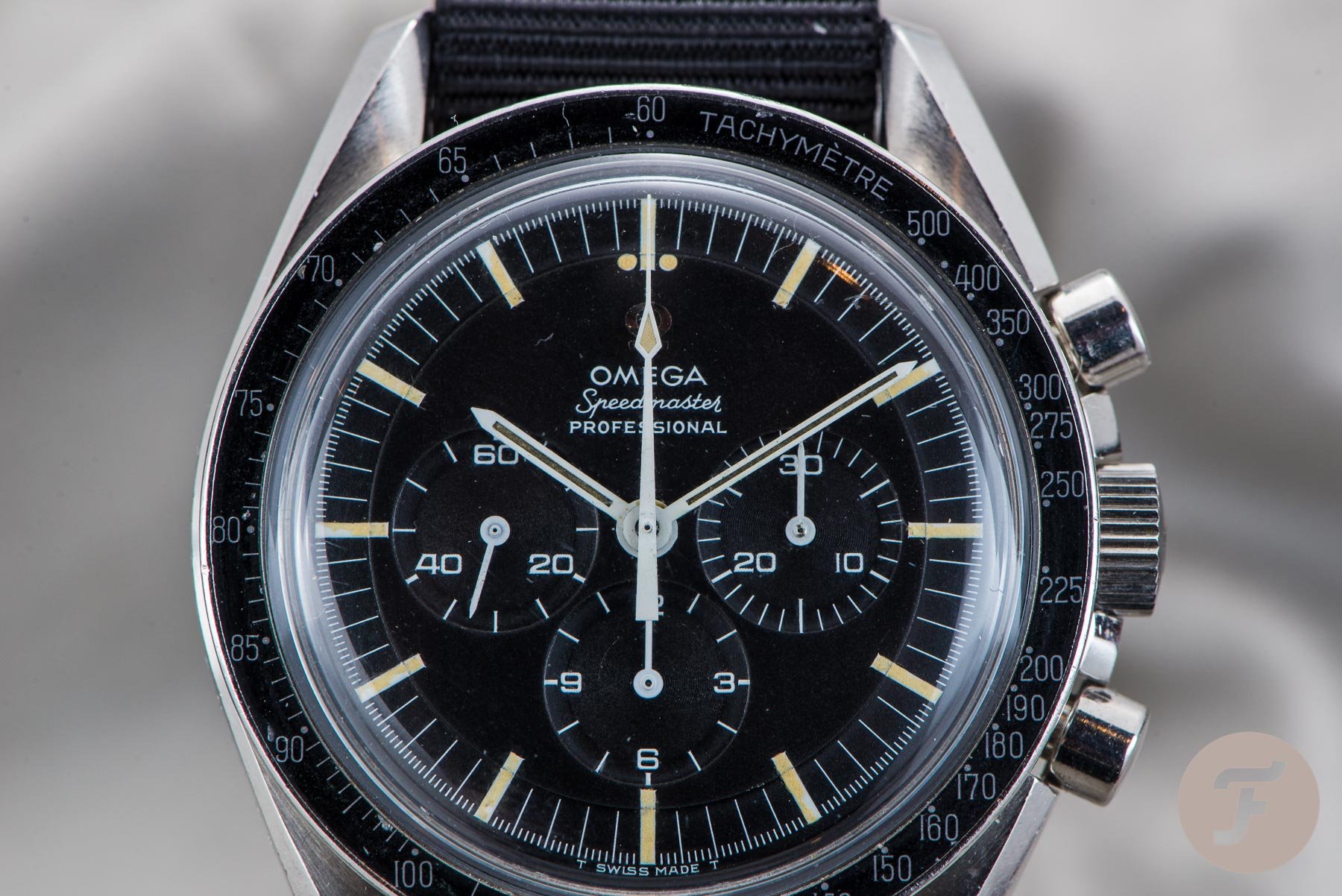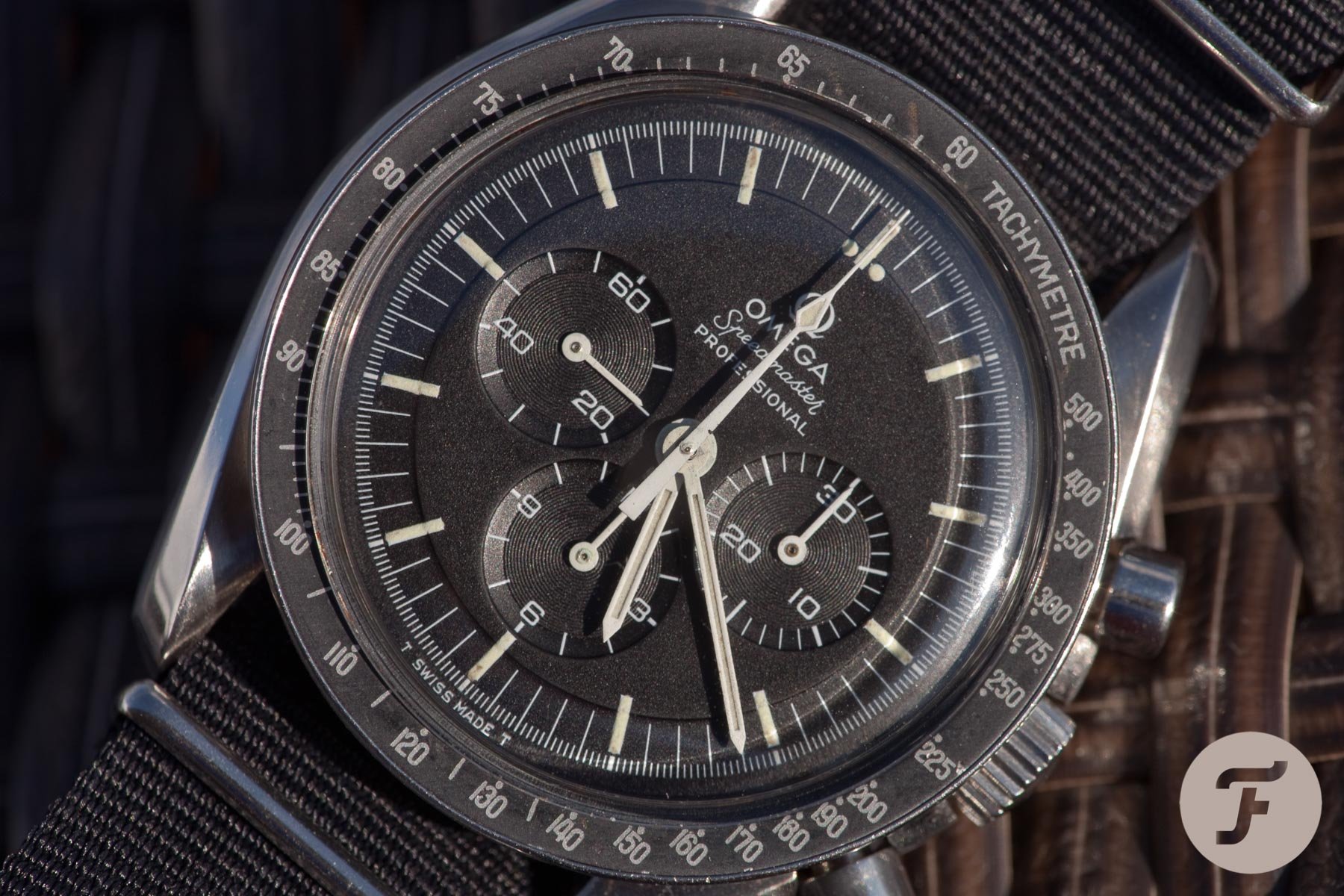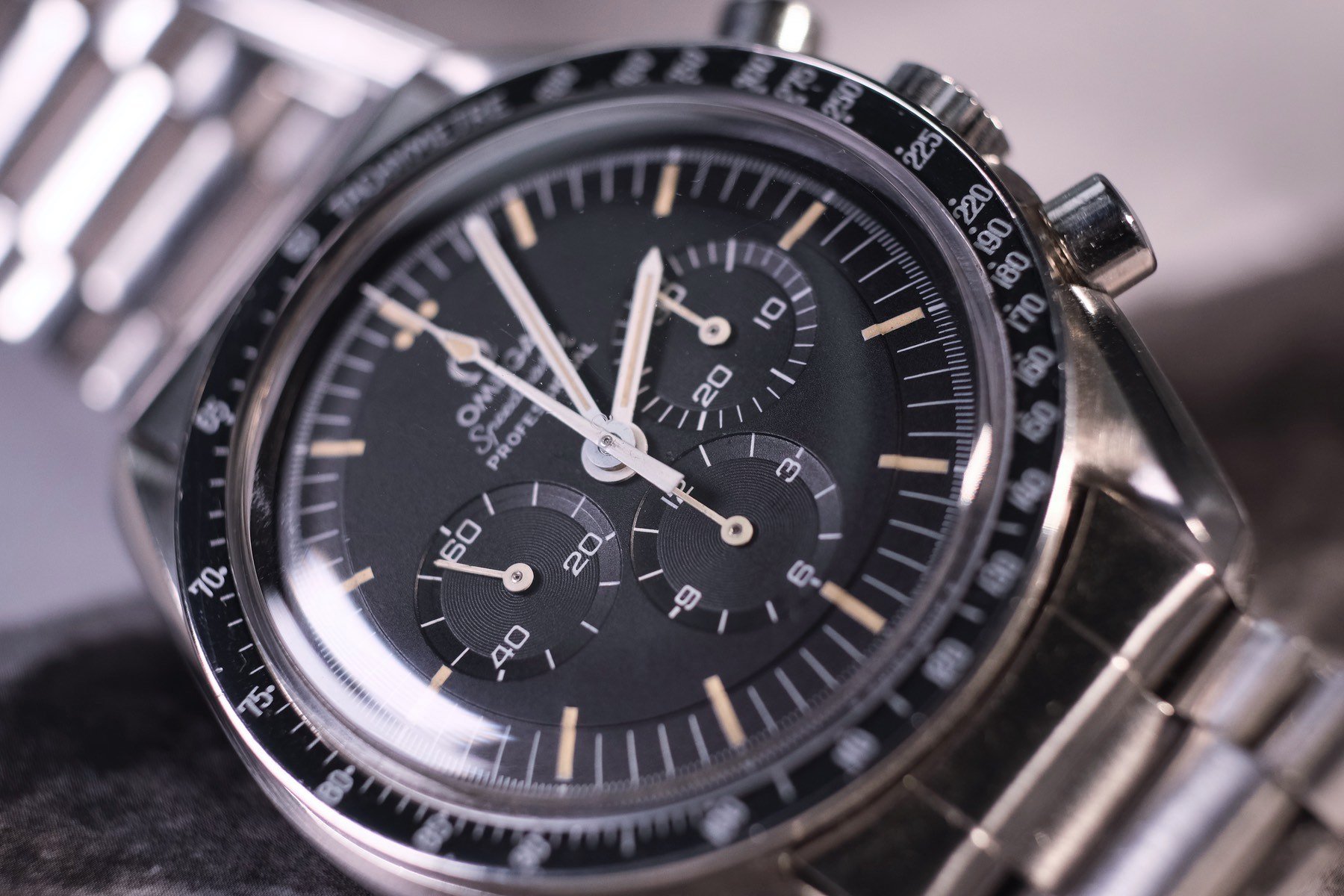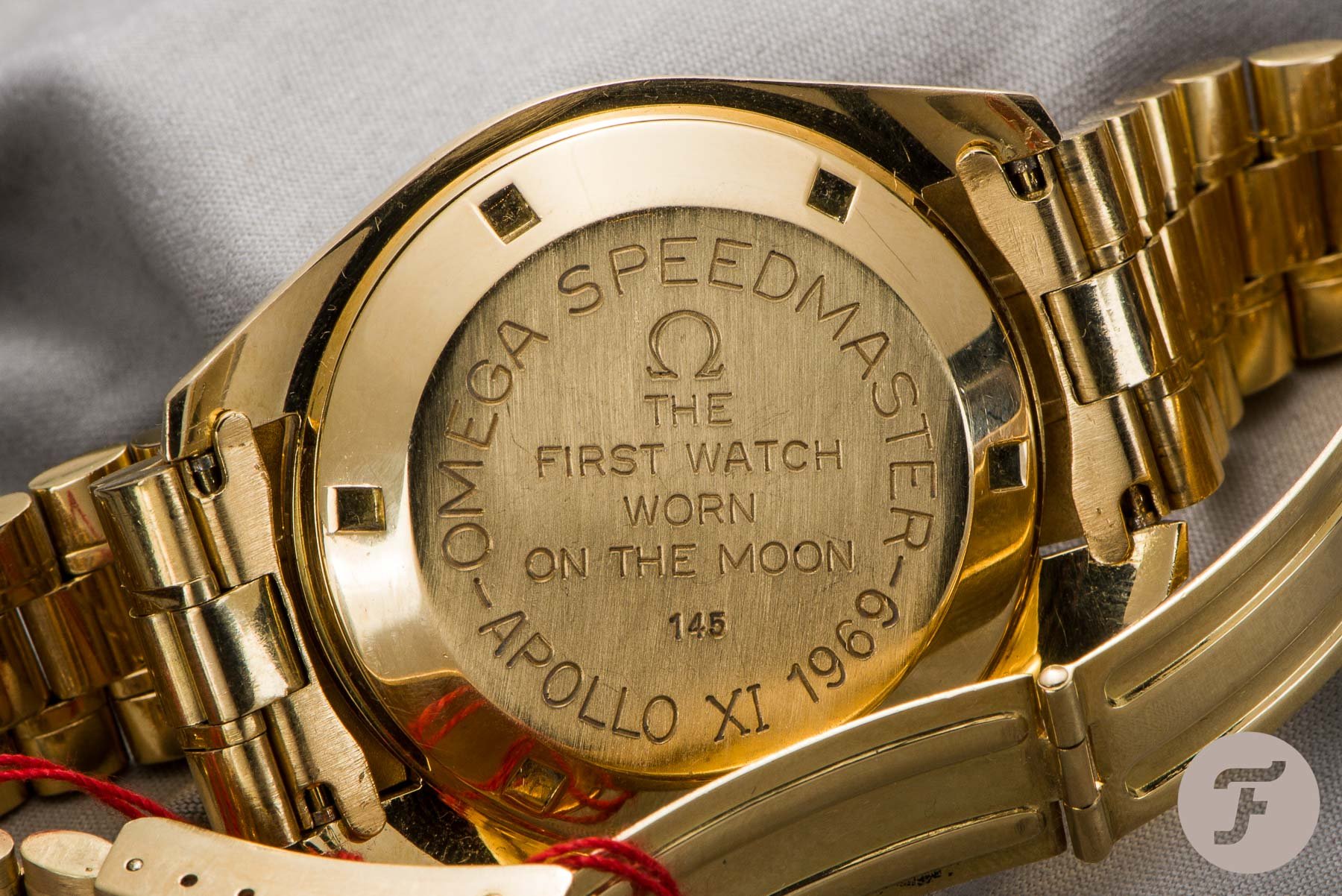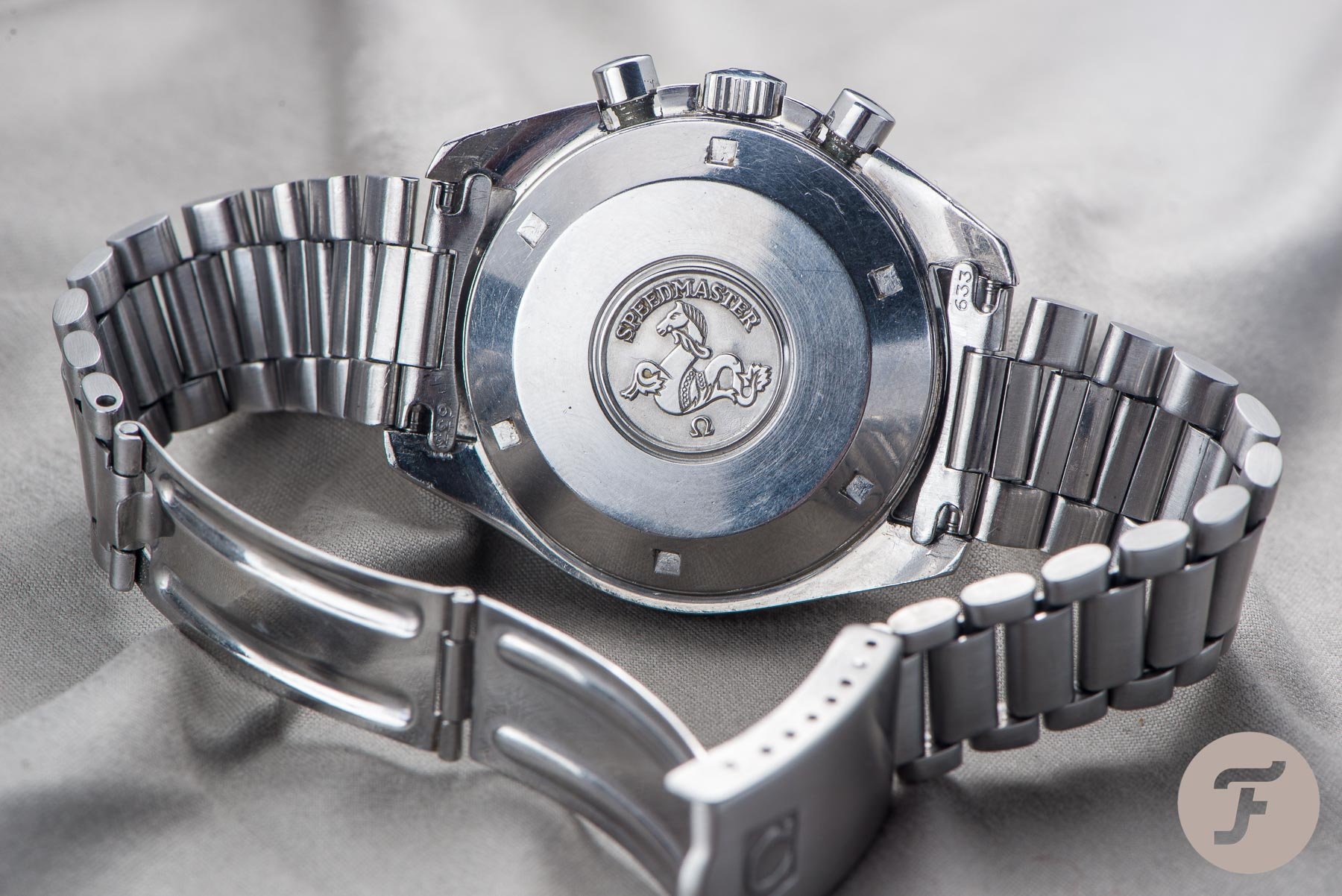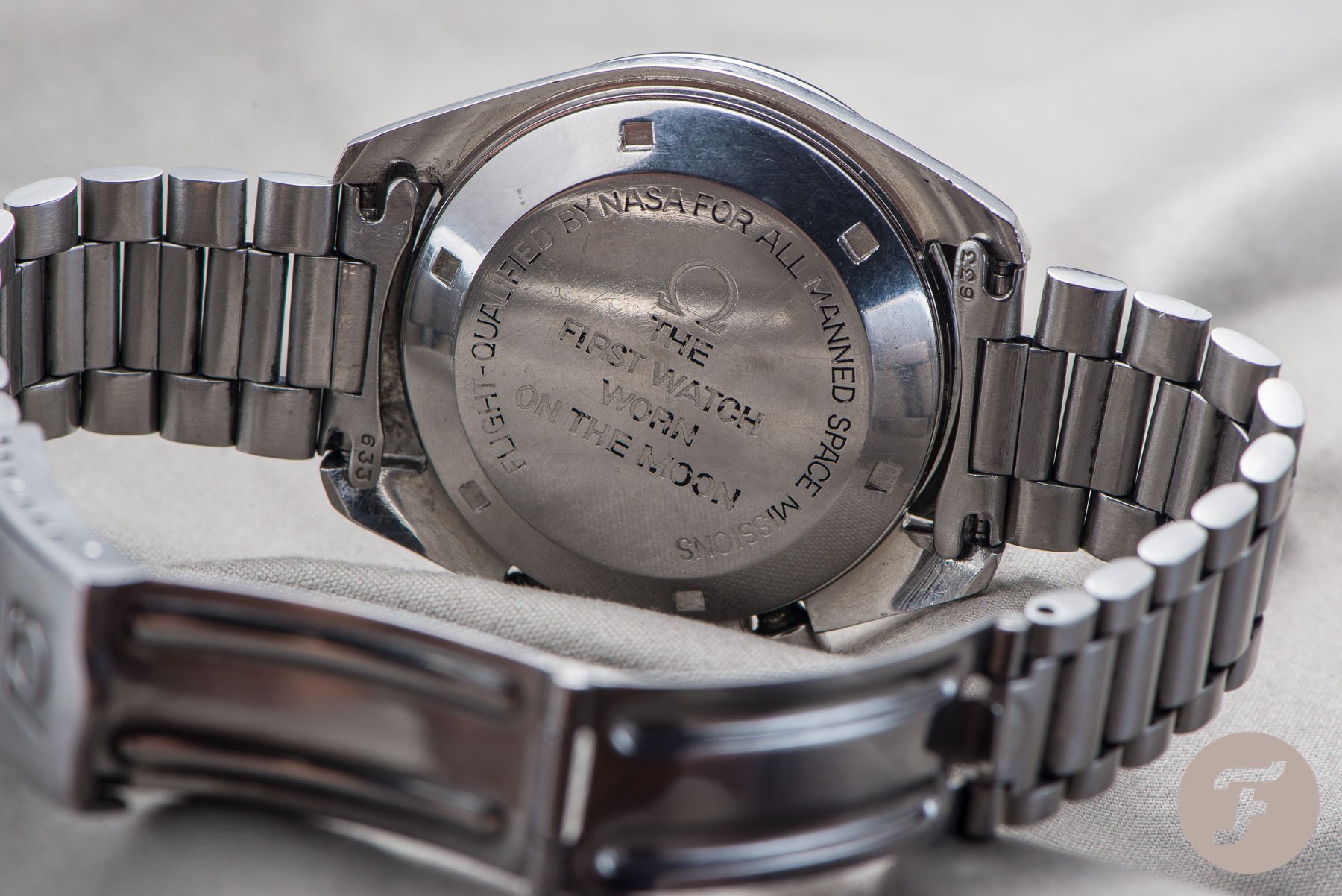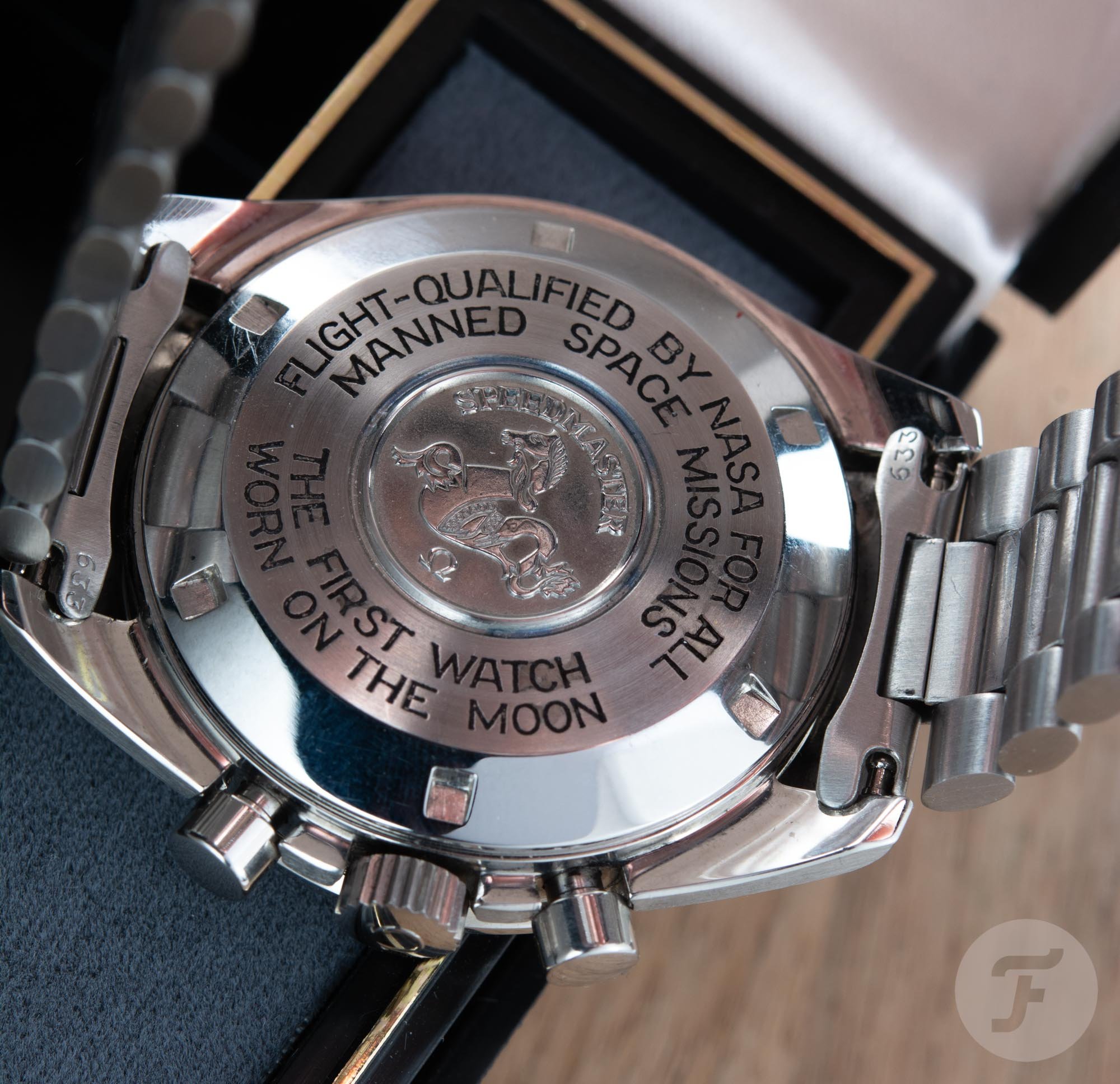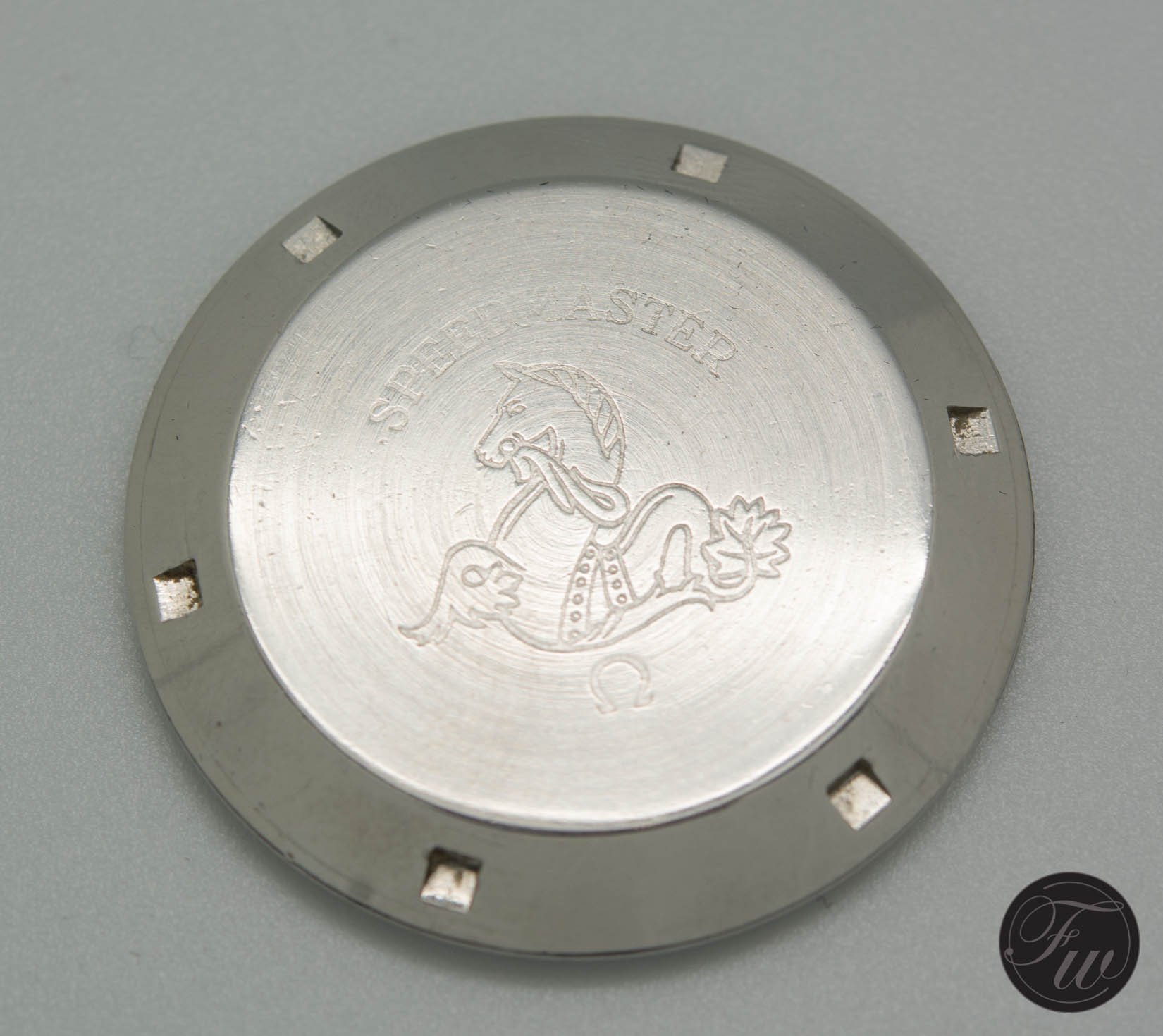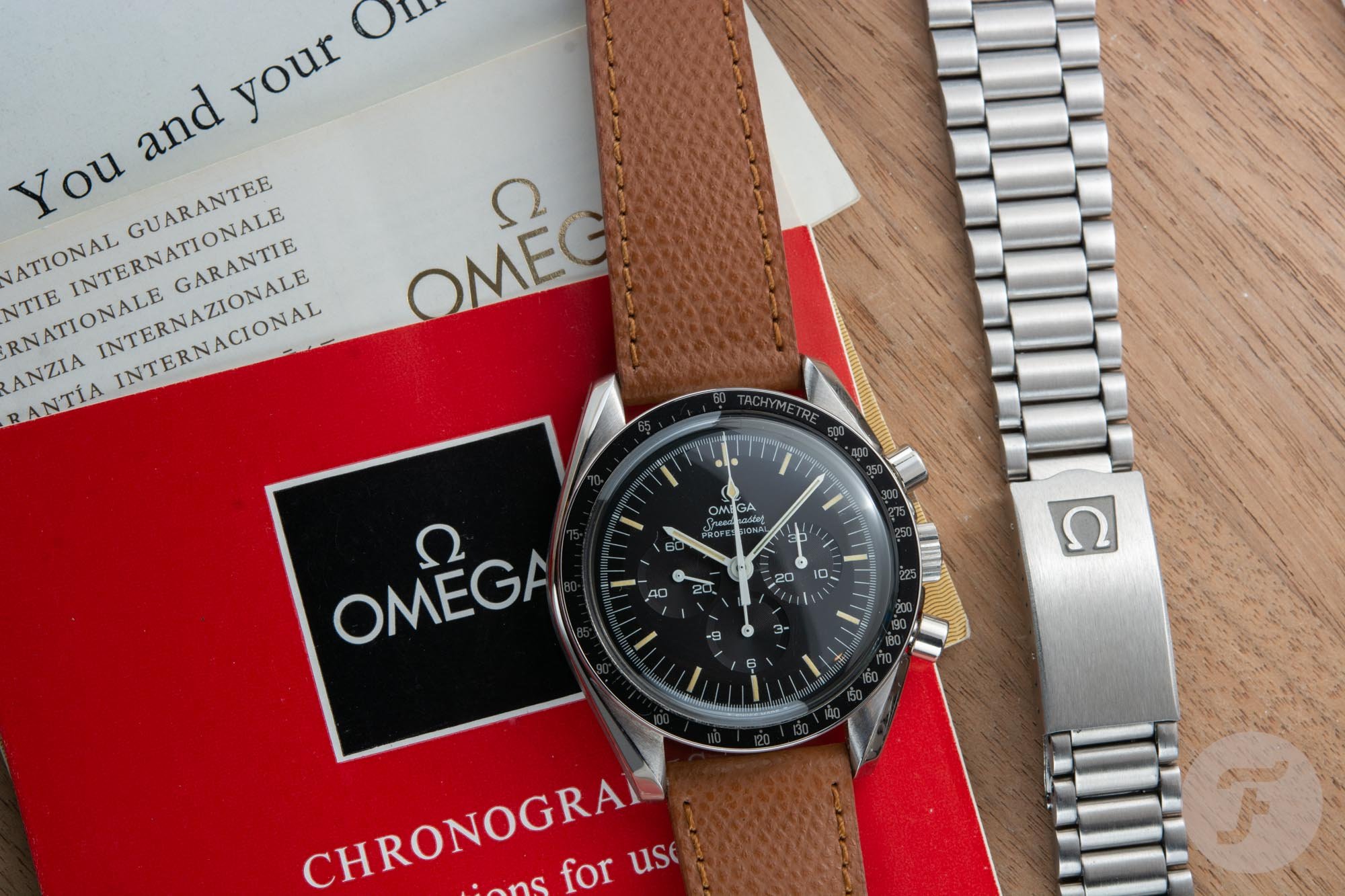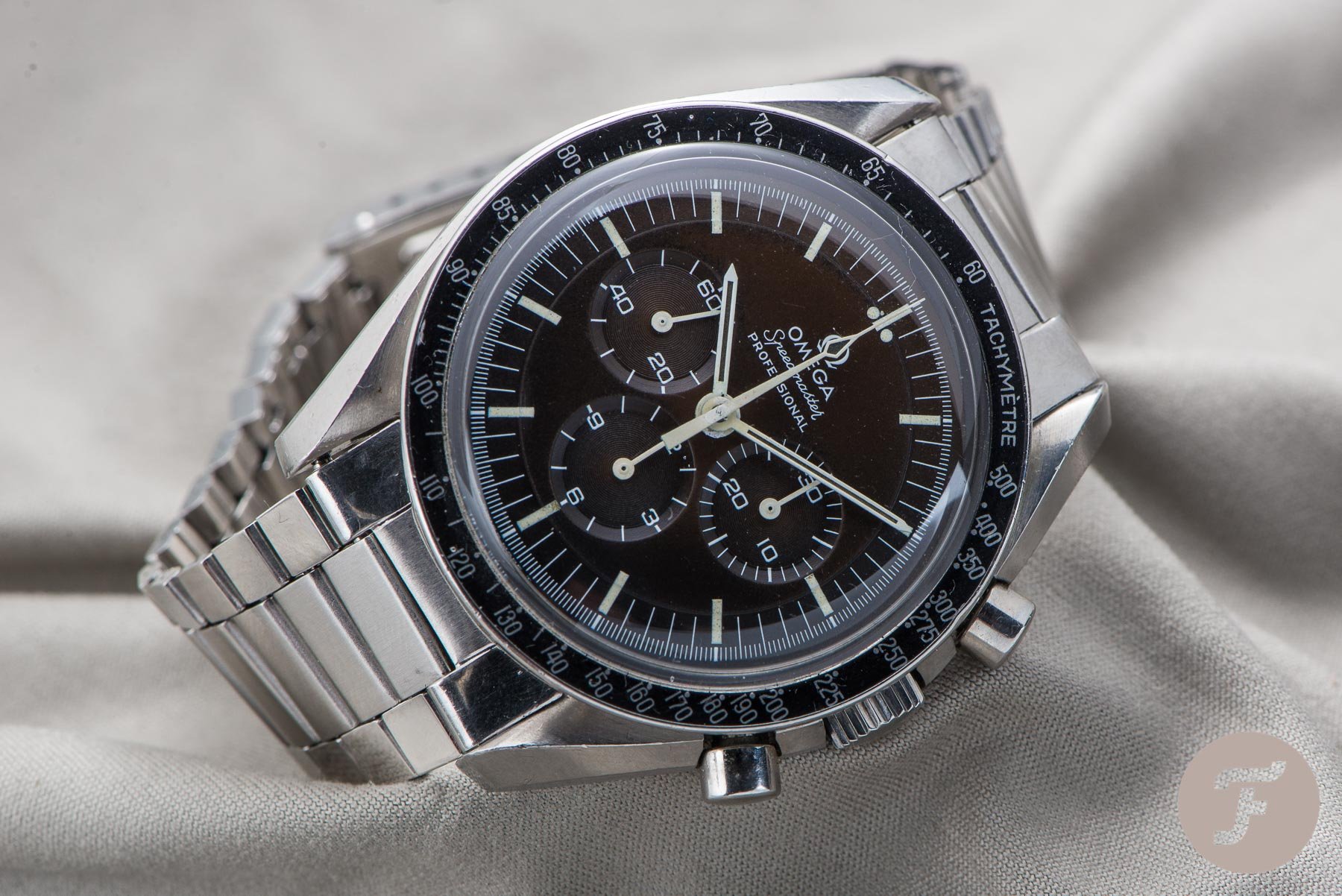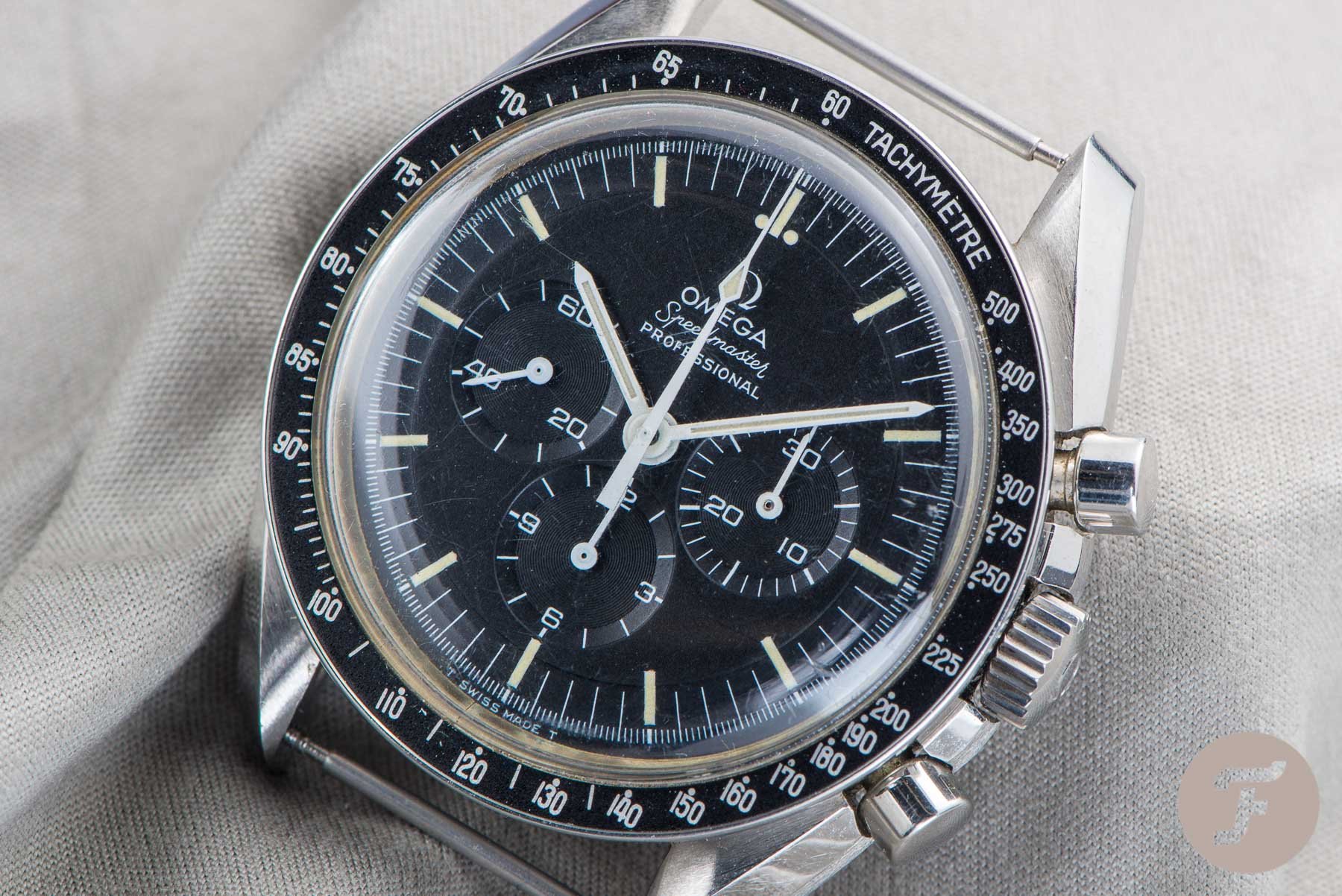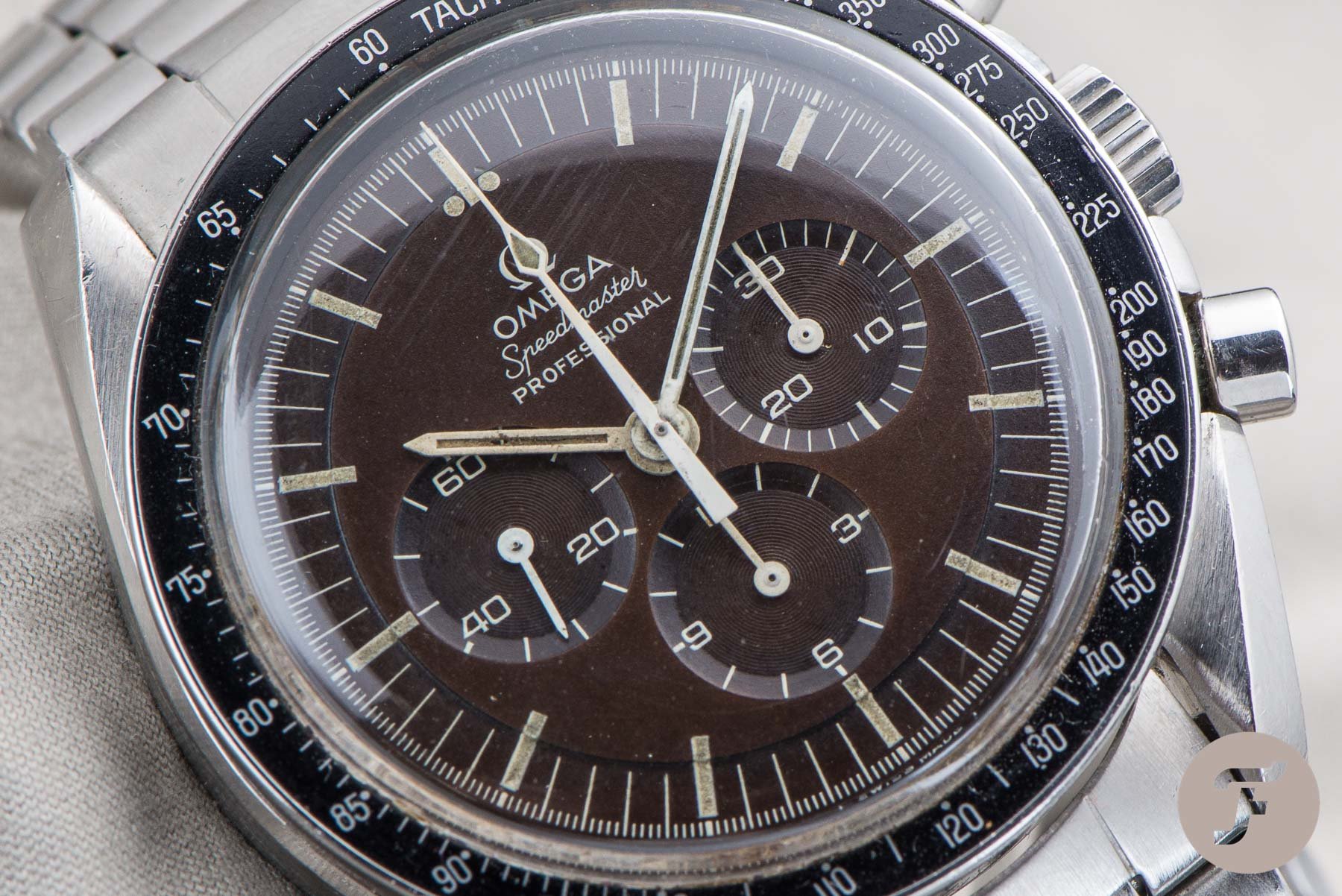Fratello Buying Guide: Omega Speedmaster Professional 145.022
For many enthusiasts, a vintage Omega Speedmaster Professional is the way to go, despite the current Moonwatch ticking a lot of boxes as well. You should be able to find a nice Speedmaster Professional reference 145.022 for an attractive price, and this buying guide should help you with the things you need to know.
The Speedmaster Professional 145.022 is a sought-after reference that was in production for a long time (1968–1988). It consisted of several iterations, each with small updates. Today, we’ll guide you through the different iterations, how to distinguish them, and how to identify the production year.
Omega Speedmaster Professional 145.022
Let’s also make it clear right from the beginning that there was also a “transitional” model in 1968. This watch still had the aesthetics of caliber-321-powered Speedmaster ref. 145.012, but it had the new caliber 861 inside. This was the reference 145.022-68, the very first Speedmaster to have the caliber 861. It was a Lemania-based successor of the caliber 321 but with a shuttle cam instead of a column-wheel mechanism. This movement also had a higher operating frequency (21,600vph instead of 18,000vph), and it was just as reliable as the caliber 321.
Why is the Speedmaster Professional 145.022 in such high demand?
The Omega Speedmaster Professional 145.022 is the reference that has quite a bit to offer. First of all, it is a vintage piece that is still reasonably affordable, depending on the production year and condition. Furthermore, there are a few variations, each of them making it an interesting piece for a collector.
You can go after a pre-Moon-landing model (1968–1969) or a post-Moon model (1969 and later). If you go the latter route, you can choose from a couple of different case backs that Omega used to indicate that the Speedmaster went to the Moon.
Near but not on the Moon
Officially, the 145.022 didn’t go to the Moon. In fact, Omega delivered its predecessors, the caliber-321-powered 105.012 and 145.012 as the official Moonwatches. Astronaut Ron Evans (pictured above) actually had a 145.022 onboard the Apollo 17 spacecraft for a heat-flow experiment. So it was never on the Moon, but it came very close. On the wrist of Ron Evans was, of course, a 145.012/105.012 with the caliber 321.
The 145.022 is interesting
So why not go after a 105.012 or 145.012? That has to do with the price, of course. Whereas the Speedmaster Professional 145.022 is still relatively affordable, the prices of the 321-powered models are going up rapidly these days. You can read about that here, but a 145.012 in good condition will be difficult to source from a dealer below €10,000. Never mind the fact that finding an all-original model becomes even more difficult and expensive. The 145.022 is more readily available in untouched condition. And if you dig deep enough, you can even find one with a box and papers.
Speedmaster reference numbers and PIC codes
The production of the 145.022 ran well into the 1980s (in 1983, Omega changed to the new 145.0022 reference number). In 1988, Omega also started using different reference numbers or product identification codes (PIC), but the 145.022/145.0022 numbers were still on the inside of the case backs to indicate the case type. Omega’s PIC coding system meant that the reference for the Moonwatch was 3590.50 until 1996. You could say that things only changed after Omega started using Super-LumiNova, a new bracelet, and the later caliber 1861 in 1996/1997. For this article, though, we’ll stick to the 145.022/145.0022 and keep the 3590.50 from 1988 (also with a new bracelet, ref. 1479) out of scope.
The condition makes it interesting
Another reason to go for a Speedmaster Professional 145.022 is that you can find them in your condition of choice. You’ll find everything from unworn to beaten-up examples without breaking the bank as you’d do with a 321 model. I tend to like my vintage watches a bit worn, showing signs of previous owners who had fun with them. You can also search for dials that have discolored a bit (or faded to brown entirely, although these fetch high prices these days). You’ll even find ones with blue or gray dials, but you will need to pay extra for those “features”. If the condition is important to you, the 145.022 is very interesting as you will even come across some hardly used sets from the early 1980s sometimes.
Omega caliber 861
Caliber 861 is the successor to the caliber 321 that Omega used in the Speedmaster from 1957 to 1968. One of the former Omega archivists told me that caliber 861 went into use in October 1968, but I cannot confirm this. Let’s just say that Omega introduced the movement in 1968. The brand did so for two reasons: it was more accurate than the caliber 321 that ticked at 18,000vph (instead of 21,600), and it was also cheaper to produce. The caliber 861 was also based on a Lemania movement, but instead of a column wheel, it used a shuttle cam for the chronograph operation. This new movement (with a different balance wheel, higher frequency, new construction, etc.) was the base for the movement that we still find in today’s Omega Speedmaster Professional models, the caliber 3861. Omega also started using the caliber 861 for other Speedmaster variations such as the Mark II in 1969.
Iterations
Over the years, the caliber 861 saw different iterations and variations. The first movements came with a steel brake, and in 1971, Omega started using the 861 with a Delrin brake. This brake was a nylon part that was more resistant to wear. There were also luxury-finished models, such as the 861L (above) and the later caliber 863. Other variations of the 861 were the chronometer-certified version (caliber 864) and the caliber 866 with a moonphase complication. Omega also used different reference numbers for these watches, so they are not in the scope of this buying guide.
Variations of the Speedmaster Professional 145.022
There are a couple of different versions of the Omega Speedmaster Professional 145.022. If you are willing to also include gold and two-tone versions, it can get really interesting. In 1969, Omega introduced the often-discussed Speedmaster Professional Apollo XI commemorative edition, with a production run of only 1,014 pieces. This is also a reference 145.022, but it has a “BA” (yellow gold) prefix. You will find more information about this model in the article we did on all the gold Speedmaster Professional models. Then there is the two-tone model with “DD” before the reference number (click here).
References
However, if we only look at stainless steel watches, you could say there are a number of versions:
- 145.022-68 “Transitional“
- 145.022-69
- 145.022-71
- 145.022-74
- 145.022-76
- 145.022-78
After that, in 1981, the 145.022 becomes the 145.0022 (but the case reference remained 145.022, to make it more confusing). The -XX indicates the production year of the case back. A common misconception is that this also indicates the exact production year of the entire watch. For example, the 145.022-69 was in production from 1969 to 1971.
How does it work?
The fact that a case back indicates 145.022-76 or -78, for example, does not mean that Omega did not produce any Speedmaster Professional 145.022 watches in 1977. Always refer to the serial/movement number (not to be confused with the caliber number) that is engraved on the movement. The 145.022-78 was replaced by the 145.0022 around 1981. On current models, you will find this serial number also on the inside of one of the lugs. Below is an example of my 3570.50 with the serial number on one of the lugs.
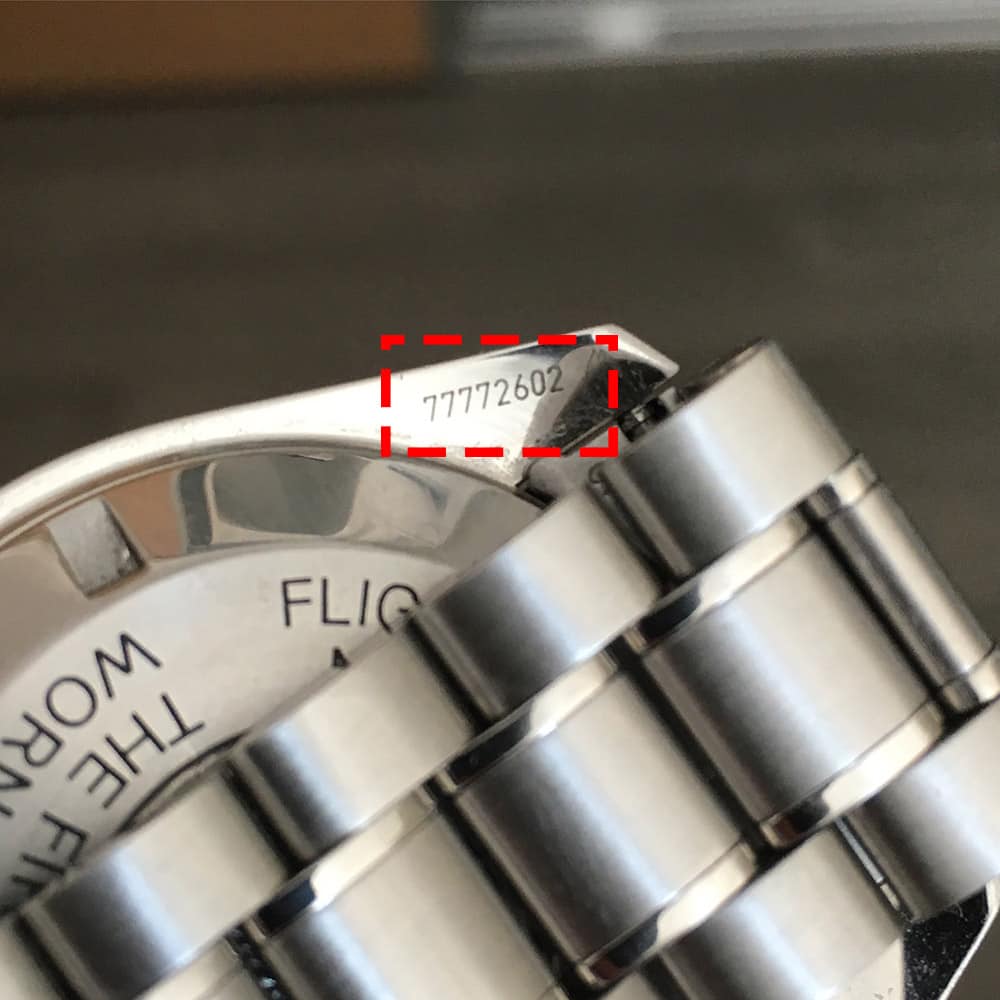
Extract of the Archives
Even with these serial or movement numbers, it can get quite tricky. Omega engraved the numbers during the production process of the movements, not during the final assembly of the watch. You can find a relatively accurate overview of Speedmaster serial numbers and matching production years here. Note, however, that it isn’t 100% accurate. For that, you will need to request an Extract of the Archives.
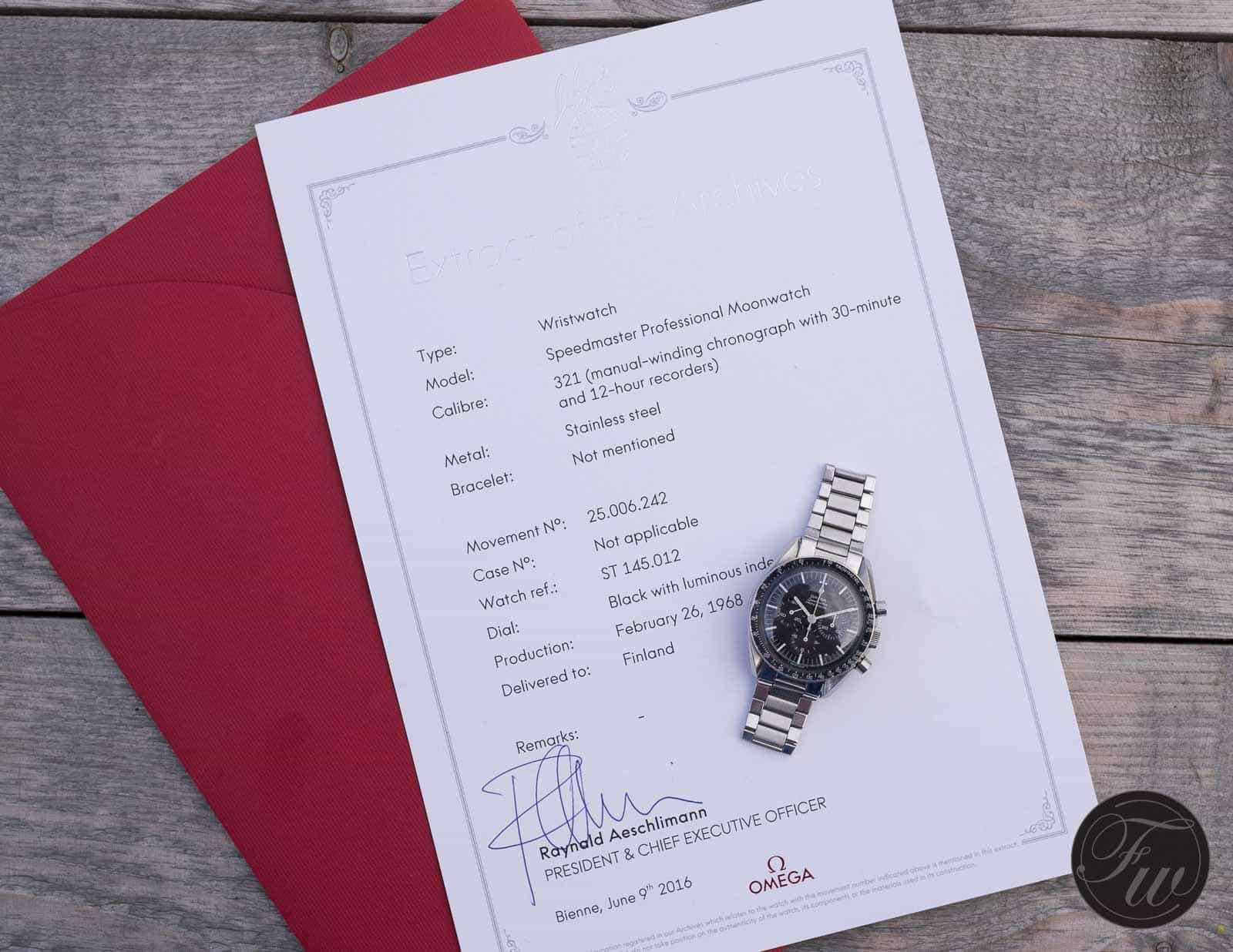
The former Extract of the Archives showing the exact production year. The new format is smaller but with the same information.
A movement might have been on the shelf for quite some time while lower numbers found their way into watches. The only way to be certain about the production year of a Speedmaster is by using the Omega Museum website to request an Extract of the Archives. We did an in-depth write-up on these Extracts of the Archives from Omega.
Case backs, dials, and bracelets
The first 145.022, with the -68 indicator on the inside of the case back, is known as the transitional model. It had the new-style hands and caliber 861 but the dial with an applied Omega logo like the previous 321-powered models. In 1969, Omega started using the white printed logo on the dial. Those first dials still had the stepped sub-registers — the counters are somewhat deeper in the dial than on later models — and the appearance of those caliber 321 models except for the hands and logo.
Dials
Basically, the dials of the Speedmaster Professional 145.022 can be divided into two different variations — the step dial and the flat dial. The step dial comes close to the dial of the 145.012 and its predecessors, except for the differences in typography and the applied Omega logo (except for the transitional 145.022-68 reference). The 145.022-69 and 145.022-71 have the step dial. This is easy to distinguish as it divides the central part of the dial from the periphery where the minute track is. This flange disappeared with the 145.022-74.
From ref. 145.022-74 and onwards, the dial should be flat with no step. To make things a bit more complex, the 145.022-76 comes in a few different variants. They always have a flat dial, of course, but the “S” in “Speedmaster” can be slightly different (the later models have a longer “S”).
Speedmaster bezels
The abbreviation “DON” has become one of the Speedmaster buzzwords in just a few years. Back when nobody could’ve cared less but just wanted to have a decent-looking bezel, a lot of these DON bezels were replaced. I plead guilty as well. DON stands for Dot Over Ninety, of course, and indicates a certain time frame for the production and use of these bezels. For the 145.022 references, the DON bezels were only used for the 145.022-68 Transitional and the 145.022-69 (but not all of them). Later on, starting with the 145.022-71, the dot was located next to the ninety (in the upper-right corner).
Dot Next To Ninety bezels
You can also identify them by the dot near the 70. DON bezels have the dot located at the lower-right side of the 70, and the later 145.022 references had the dot next to the 70 (in the middle). However, not every 145.022-69 was delivered with a DON bezel, there are also 145.022-69 references that had the non-DON bezel (if that makes sense). So don’t stare blindly at the bezel when it concerns a 145.022-69. The DON bezels also had an “È” instead of an “E” in “TACHYMÈTRE”. Keep in mind, however, that if your reference/serial number should have a DON bezel and it doesn’t, these parts have become crazily expensive.
Misprinted 220 bezels
There is one bezel that is perhaps even more interesting than a DON bezel for a Speedmaster 145.022-69 — the “220” bezel from 1970 only. This bezel was a misprint by Omega. Where the tachymeter should have said “200” — let’s say at three-thirty — it said “220”. You can find more information about these 220 bezels here and more about Speedmaster bezels in general here.
Case backs
I already touched on the subject of case backs above, but in general, there were four different case backs for the Speedmaster Professional 145.022:
- Case back with seahorse and “Speedmaster” writing (145.022-68/-69)
- Case back with straight “First Watch Worn On The Moon” writing (145.022-69, 1970–1973)
- Case back with straight “First Watch Worn On The Moon – Apollo XI 1969” writing (145.022-69, 1971/1972)
- Case back with “Flight-Qualified by NASA For All Manned Space Missions” writing (145.022-71/-78)
Then there’s a fifth version, but it’s so rare that we don’t consider it part of the normal collection:
- Case back with no engraving “No NASA” (145.022-71)
Engravings
Let me start by saying that the straight-writing case backs are the rare ones, especially the ones with “Apollo XI 1969” engraved in them as well. These are more or less the same as the gold BA145.022 Speedmaster Professional Apollo XI (the one with the burgundy bezel, remember?) case back with the “Apollo XI 1969” engraving.
The straight-writing case backs are the most sought-after ones, but please note that a number of these different case backs were used in the same period or at least with overlap.
Pre-Moon case back
The plain case back with only a seahorse and “Speedmaster” writing is considered the “Pre-Moon” case back, although this design was used for the 145.022-69 until 1971 when Omega started using the 145.022-71 reference number sometime during that year.
Speedmaster bracelets
When it comes to Speedmaster bracelets, we could write a separate book on those. Let’s keep it short and simple, though, and not make rocket science out of it (as it wasn’t for Omega at the time). Several different bracelets have been used for the Speedmaster Professional 145.022, from reference 1039 with flexible links (until 1971) to the most famous “145.022” bracelet, reference 1171. You will also come across bracelets with reference numbers 1116 (very similar to the 1990s reference 1479) and 1175 (similar to 1171).
Holzer and the 1171/1 bracelet
Then there is the Holzer bracelet, which looks a bit different. It was produced in Mexico with a local supplier (Holzer) and was used as a standard bracelet in the 1980s (and also to replace the original 1171 bracelet during service). These 1171/1 bracelets use pins stead of screws.
What to pay and where to look?
The price you’ll pay for a Speedmaster Professional 145.022 greatly depends on the condition but also on the variation or specifics of the watch. A Speedmaster Professional 145.022 with a tropical dial (see below) will fetch more than one without, and a Speedmaster 145.022-78 with a box and papers in New Old Stock condition will be more expensive than a worn-out Speedmaster 145.022-69 with a straight text engraving. Websites or apps like Chrono24 are useful to determine the price of a watch. However, there’s often a difference between the asking prices and the actual transaction price. A website like WatchCharts shows transaction data when it comes to prices.
Buying tips
The best buys I’ve gotten for Speedmaster watches, including the 145.022 models, were on eBay or through people offering them directly to me. Another great alternative is to keep track of the sales sections on Omega Forums, where you will often buy a Speedmaster from another collector or enthusiast. You can also try your luck at auctions, but Speedmasters are popular, and you’ll have to pay a premium (20–25%) to the auction house on top of the hammer price. You’ll also find many Omega Speedmaster Professional 145.022 models on Chrono24. By using the site’s escrow service, you have some protection as a buyer as well. You might also want to read Thomas’s article on tips for buying pre-owned watches here.
*This article appeared first here on Fratello Watches on October 6th, 2015. We added more information regarding the timeline of the 145.022, updated pricing information, added variations, and so on. We will keep updating this article in the future to give the most accurate (buying) information for the 145.022.

